
PAUL O’DETTE & STEPHEN STUBBS, Musical Directors
SATURDAY, MARCH 2, 2024
8PM | New England Conservatory’s Jordan Hall, MA
The Packard Humanities Institute is pleased to announce the publication of


PAUL O’DETTE & STEPHEN STUBBS, Musical Directors
SATURDAY, MARCH 2, 2024
8PM | New England Conservatory’s Jordan Hall, MA
The Packard Humanities Institute is pleased to announce the publication of
Contents:
Johann Christian Bach: A Life in Opera, by John A. Rice
Artaserse, by Margaret R. Butler
Catone in Utica and Alessandro nell’Indie, by Lucio Tufano
Orione, ossia Diana vendicata and Zanaida, by Michael Burden
Adriano in Siria, by John A. Rice
Carattaco, by Stephen Roe
Temistocle and Lucio Silla, by Paul Corneilson
La clemenza di Scipione, by Karl Böhmer
Amadis de Gaule, by Beverly Wilcox
IsBn 978-1-938325-51-9 (2023; xiii, 160 pp.) $30
Order your copy at jcbach.org or orders@pssc.com


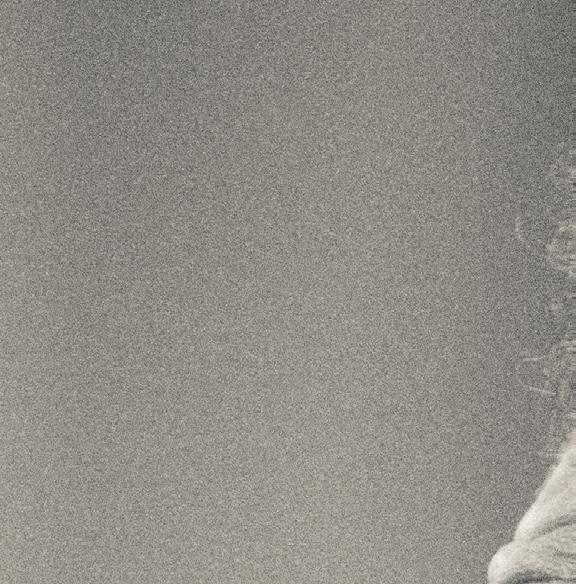
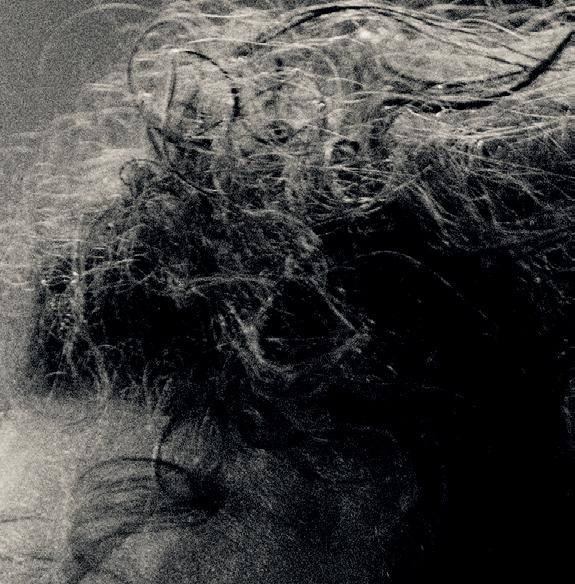

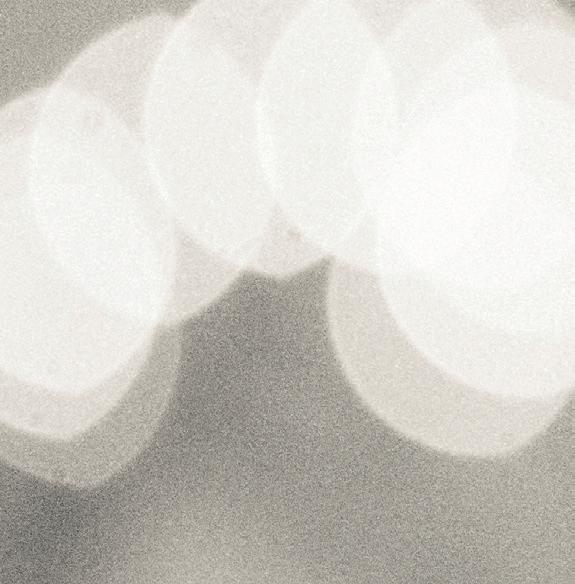

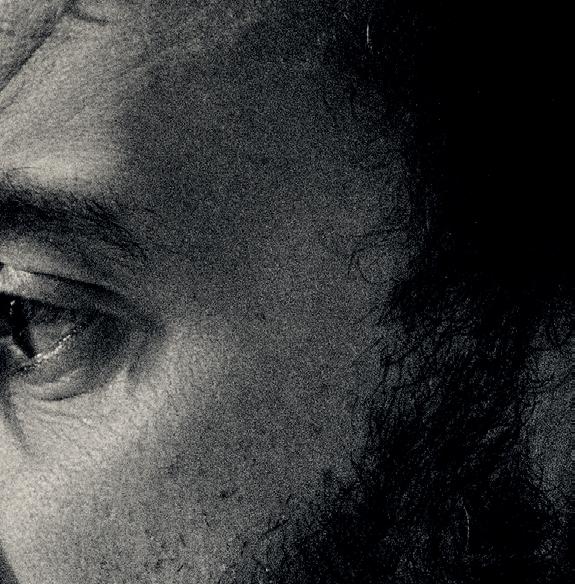


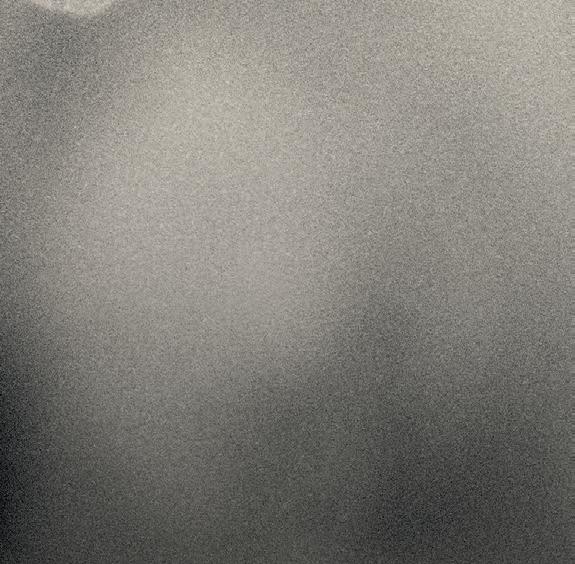


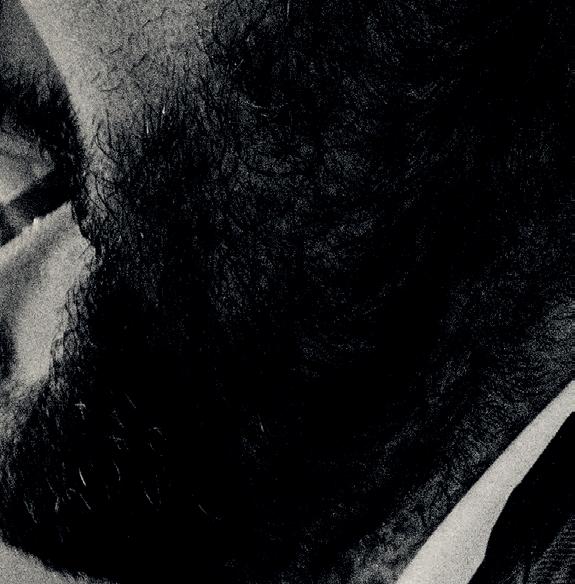
The south-east corner of Sicily is blessed with many delights, among them a number of gorgeous 18th- and 19th-century theatres. This festival presents five performances in a selection of these atmospheric buildings, all of which are located amid breathtakingly beautiful Baroque towns and cities. Stay throughout in historic Ortygia, one of the loveliest coastal towns in Italy.

MARTIN RANDALL FESTIVALS bring together world-class musicians for a sequence of private concerts in Europe’s most glorious buildings, many of which are not normally accessible. We take care of all logistics, from flights and hotels to pre-concert talks. Festivals in 2024 also include: Salzburg String Quartet Festival (7–12 May), Mozart Along the Danube (28 July–4 August) and The Divine Office (30 September–4 October).
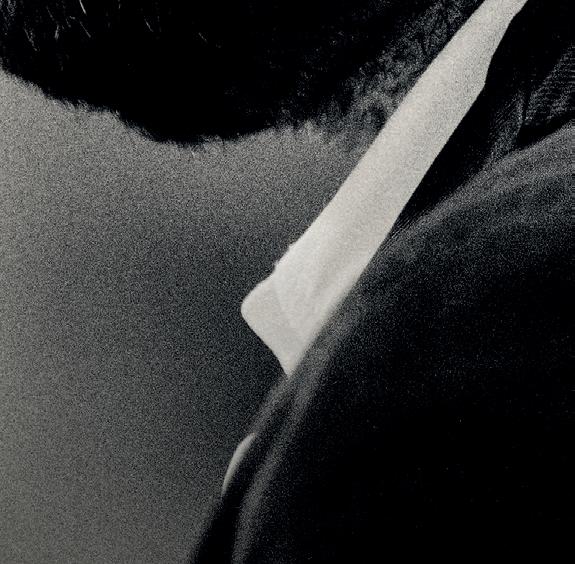
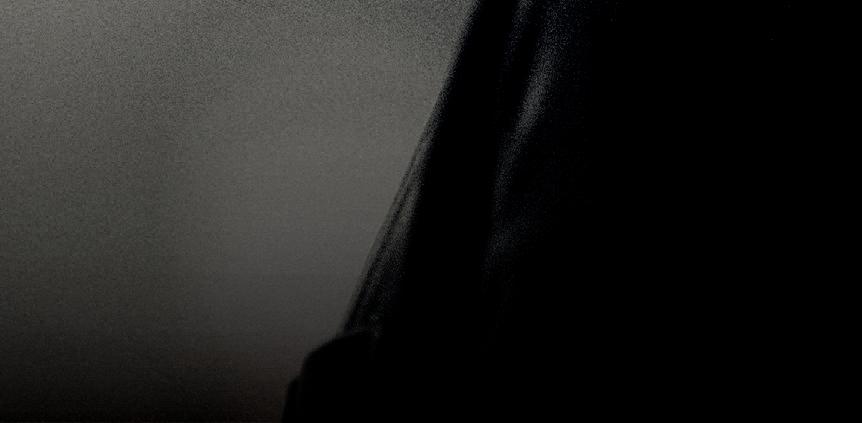

Seen Together: Acquisitions in Photography
January 26 May 26, 2024
Beatrix Potter: Drawn to Nature
February 23 June 9, 2024
Walton Ford: Birds and Beasts of the Studio
April 12 October 13, 2024
Liberty to the Imagination: Drawings from the Eveillard Gift
June 7 October 6, 2024
Far and Away: Drawings from the Clement C. Moore Collection
June 28 September 22, 2024
Crafting the Ballet Russes: The Robert Owen Lehman Collection
June 28 September 22, 2024

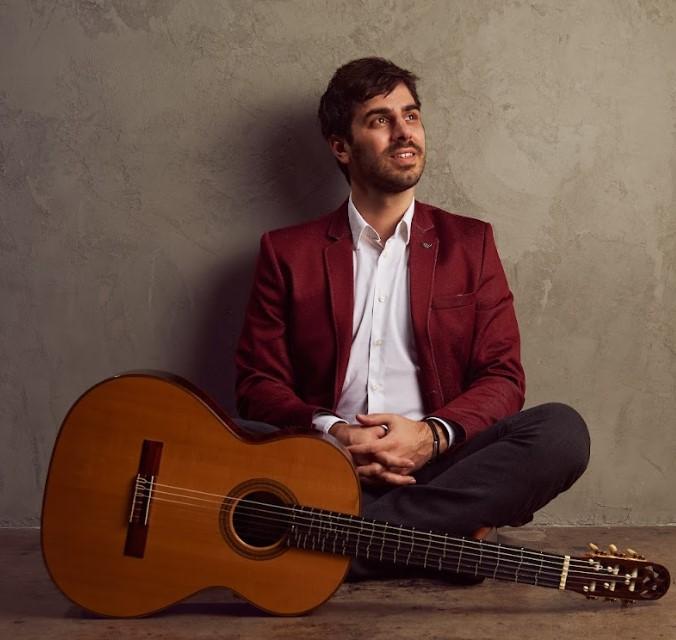
Boston Early Music Festival Vocal & Chamber Ensembles
A Garden of Earthly Delights at the Papal Court: Marco Marazzoli’s extravagant musical entertainments
Sunday, March 3, 2024, 3-5 PM
Mak Grgic, guitar
Rush Hour Music in J. Pierpont Morgan’s Library
Tuesday, March 12, 2024, 6:30-7:30 PM
Daniel McGrew, tenor Young Concert Artists
Wednesday, March 20, 2024, 12-1 PM
For information visit themorgan.org/programs
The Morgan Library & Museum
225 Madison Avenue at 36th Street New York, NY 10016
The concert program is made possible by assistance from Cynthia Hazen Polsky and Leon B. Polsky, the Joan and Alan Ades-Taub Family Foundation, the Esther Simon Charitable Trust, the Witherspoon Fund of the New York Community Trust, the Theodore H. Barth Foundation, and the following endowed funds: the Cynthia Hazen Polsky and Leon B. Polsky Fund for Concerts and Lectures; and the Celia Ascher Endowment Fund.
Upper: Mak Grgic photographed by Anthony Avellano. Lower: Léon Bakst (1866–1924), “Firebird and the Prince (Tsarevitch),” poster design for Firebird, 1915. Harvard Theatre Collection, Houghton Library, Howard D. Rothschild Collection. Used by kind permission of European American Music Distributors Company, sole U.S. and Canadian agent for Schott Music GmbH & Co. KG, Mainz, Germany, publisher and copyright owner.Dear Friends,
As we move ever closer to the beginning of Spring, we are especially pleased to welcome the incomparable members of the Boston Early Music Festival Vocal & Chamber Ensembles in their exploration of the myriad delights of the Roman Baroque. Their program features the modern premieres of several extravagant, six-voice chamber cantatas by Marco Marazzoli. A veritable musical feast, each of these five miniature dramas on subjects ranging from the glories of Italian wines to matters of war and peace are presented through varying combinations of voices, from solo arias to quintets, culminating in magnificent choruses employing all six voices. Grammy-winning Musical Directors Paul O’Dette and Stephen Stubbs lead an all-star roster of 14 singers and instrumentalists, including Grammy-winning tenors Aaron Sheehan and James Reese, and Grammy nominees Teresa Wakim, soprano, and Jesse Blumberg, baritone. This program will be repeated in New York City at the Morgan Library & Museum on Sunday, March 3, 2024 at 3pm, and then made available virtually March 16 through 30.
We hope you will join us for the final two concerts of our season, beginning on Friday, April 5, in NEC’s Jordan Hall, when the great Catalan viola da gambist Jordi Savall returns to BEMF with Hespèrion XXI, in a program titled “Le Nuove Musiche: The Baroque Revolution (1560–1660).” Our 34th Season culminates on Friday, April 19, with the luminous British vocal ensemble Stile Antico at St. Paul Church in Cambridge. Before then, BEMF virtual performances this month include Opera Prima’s stunning program with soprano Amanda Forsythe, for one more day only, Sunday, March 3, and Le Consort’s scintillating exploration of the Baroque trio sonata from March 8 through 22.
Thank you for joining us for tonight’s performance, whether live or virtually, and as always, please accept our heartfelt thanks for your continued support of and enthusiasm for the Boston Early Music Festival.
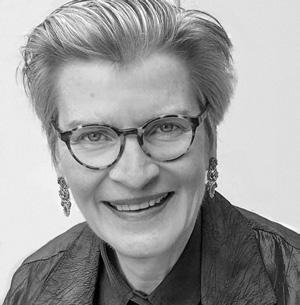
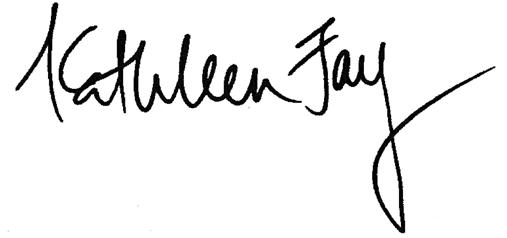


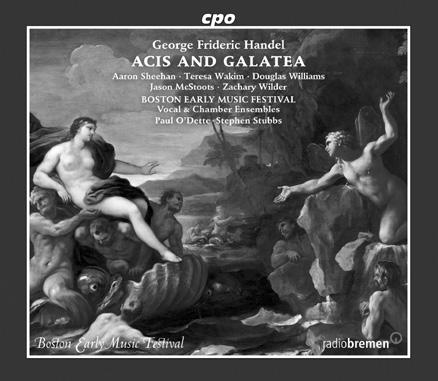
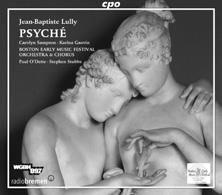

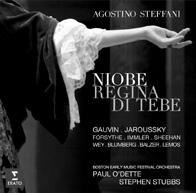
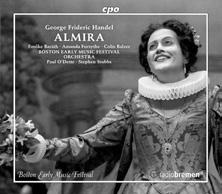


Kathleen Fay, Executive Director
Carla Chrisfield, General Manager
Maria van Kalken, Assistant to the Executive Director
Brian Stuart, Director of Marketing and Publicity
Elizabeth Hardy, Marketing and Development Associate & Exhibition Manager
Perry Emerson, Operations Manager
Corey King, Box Office and Patron Services Manager
Andrew Sigel, Publications Editor
Nina Stern, Director of Community Engagement
Paul O’Dette and Stephen Stubbs, Artistic Directors
Gilbert Blin, Opera Director
Robert Mealy, Orchestra Director
Melinda Sullivan, Lucy Graham Dance Director
Bernice K. Chen, Chairman | David Halstead, President
Brit d’Arbeloff, Vice President | Susan L. Robinson, Vice President
Adrian C. Touw, Treasurer | Peter L. Faber, Clerk
Michael Ellmann | George L. Hardman | Ellen T. Harris | Glenn A. KnicKrehm
Robert E. Kulp, Jr. | Miles Morgan | Bettina A. Norton
Lee S. Ridgway | Ganesh Sundaram | Christoph Wolff
Diane Britton | Gregory E. Bulger | James S. Nicolson
Amanda Pond | Robert Strassler | Donald E. Vaughan
Marty Gottron & John Felton, Co-Chairs
Deborah Ferro Burke | Mary Deissler | James A. Glazier
Edward B. Kellogg | Douglas M. Robbe | Jacob Skowronek
43 Thorndike Street, Suite 302, Cambridge, MA 02141-1764
Telephone: 617-661-1812 | Email: bemf@bemf.org | BEMF.org
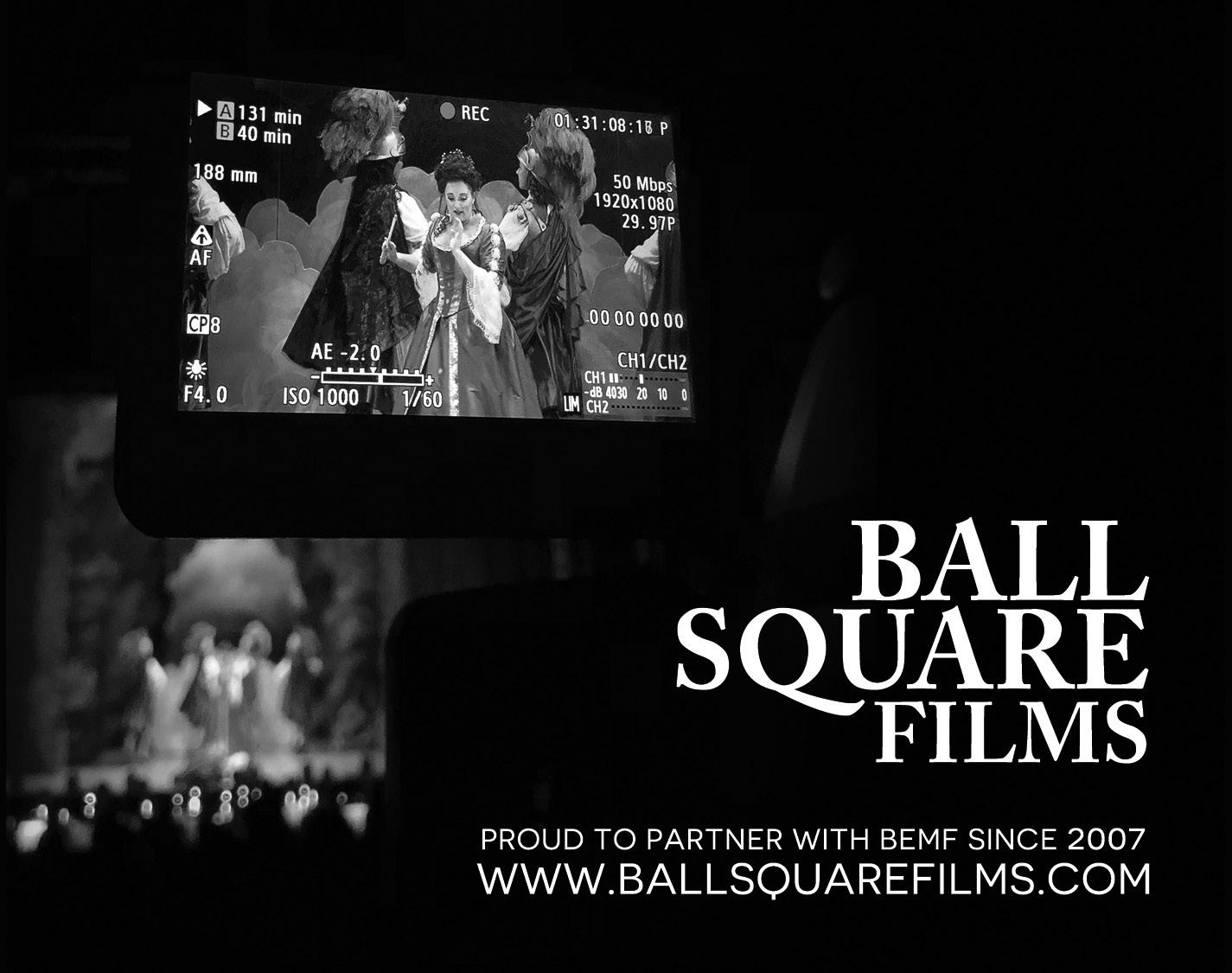

Jon Aaron
Debra K.S. Anderson
Kathryn Bertelli
Mary Briggs
Diane Britton
Douglas M. Brooks
Gregory E. Bulger
Julian G. Bullitt
Deborah Ferro Burke
John A. Carey
Anne P. Chalmers
Bernice K. Chen
Joel I. Cohen
Brit d’Arbeloff
Vivian Day
Mary Deissler
Peter L. DeWolf
JoAnne W. Dickinson
Richard J. Dix
Alan Durfee
Michael Ellmann
Peter L. Faber
Emily C. Farnsworth
Kathleen Fay
Lori Fay
John Felton
Frances C. Fitch
Claire Fontijn
James A. Glazier
Marty Gottron
Carol A. Haber
David Halstead
George L. Hardman
Ellen T. Harris
Rebecca Harris-Warrick
Richard Hester
Jessica Honigberg
Jennifer Ritvo Hughes
Edward B. Kellogg
Thomas F. Kelly
Glenn A. KnicKrehm
Christine Kodis
John Krzywicki
Kathryn Kucharski
Robert E. Kulp, Jr.
Ellen Kushner
Christopher Laconi
Thomas G. MacCracken
William Magretta
Bill McJohn
Miles Morgan
Nancy Netzer
Amy H. Nicholls
James S. Nicolson
Bettina A. Norton
Scott Offen
Lorna E. Oleck
Henry P.M. Paap
James M. Perrin
Bici Pettit-Barron
Amanda Pond
Melvyn Pond
Paul Rabin
Christa Rakich
Lee S. Ridgway
Michael Rigsby
Douglas M. Robbe
Michael Robbins
Susan L. Robinson
Patsy Rogers
Wendy Rolfe-Dunham
Loretto Roney
Thomas Roney
Ellen Rosand
Valerie Sarles
David W. Scudder
Andrew Sigel
Jacob Skowronek
Arlene Snyder
Jon Solins
Robert Strassler
Ganesh Sundaram
Adrian C. Touw
Peggy Ueda
Donald E. Vaughan
Ingeborg von Huene†
Nikolaus von Huene
Howard J. Wagner
Benjamin D. Weiss
Ruth S. Westheimer
Allan Winkler
Hal Winslow
Christoph Wolff
Arnold B. Zetcher
Ellen Zetcher
† deceased
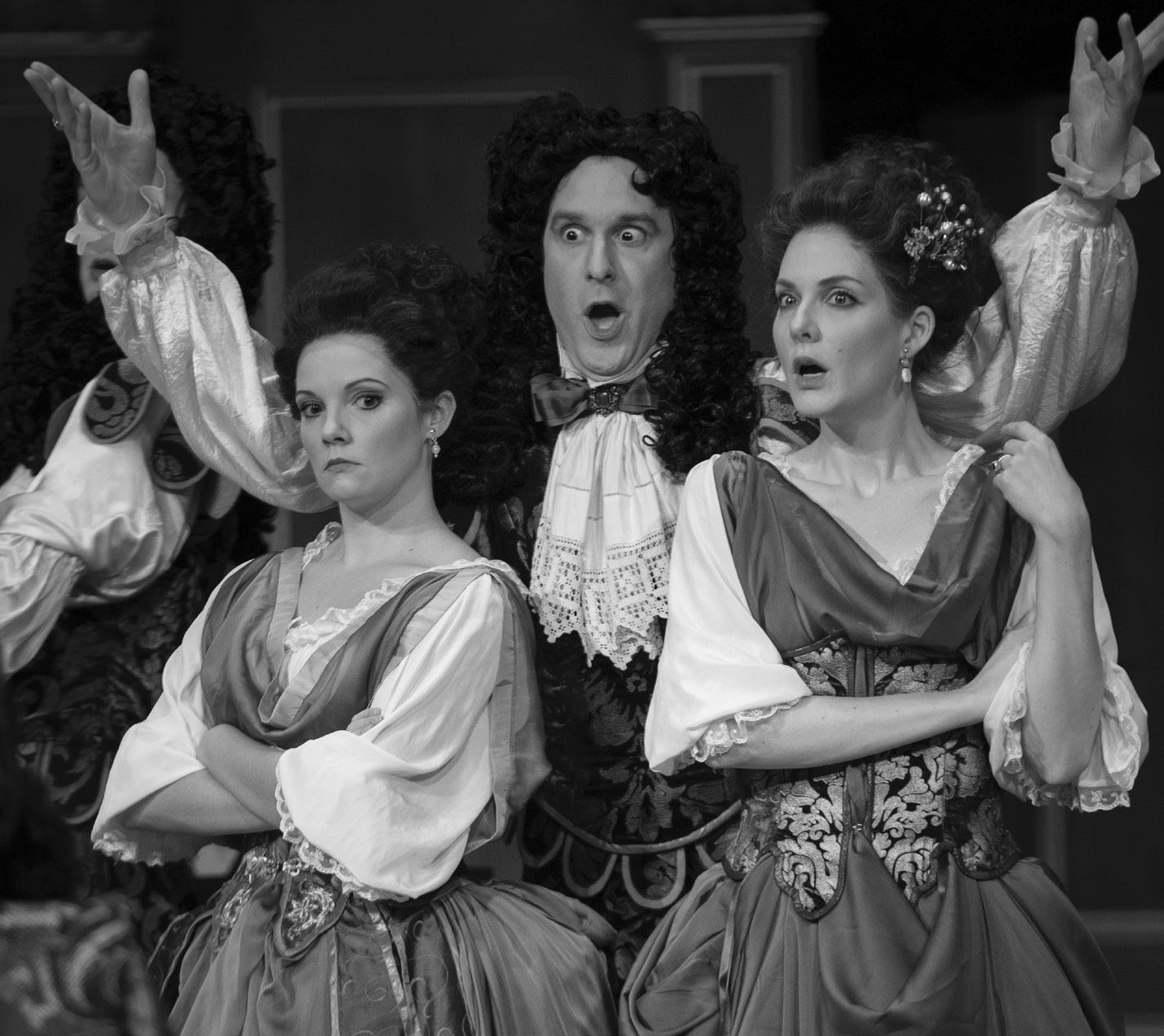

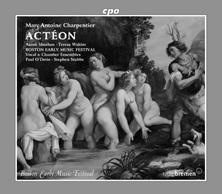

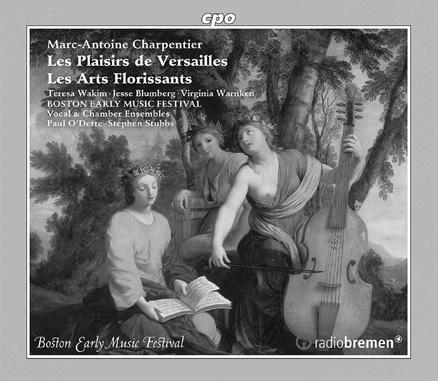
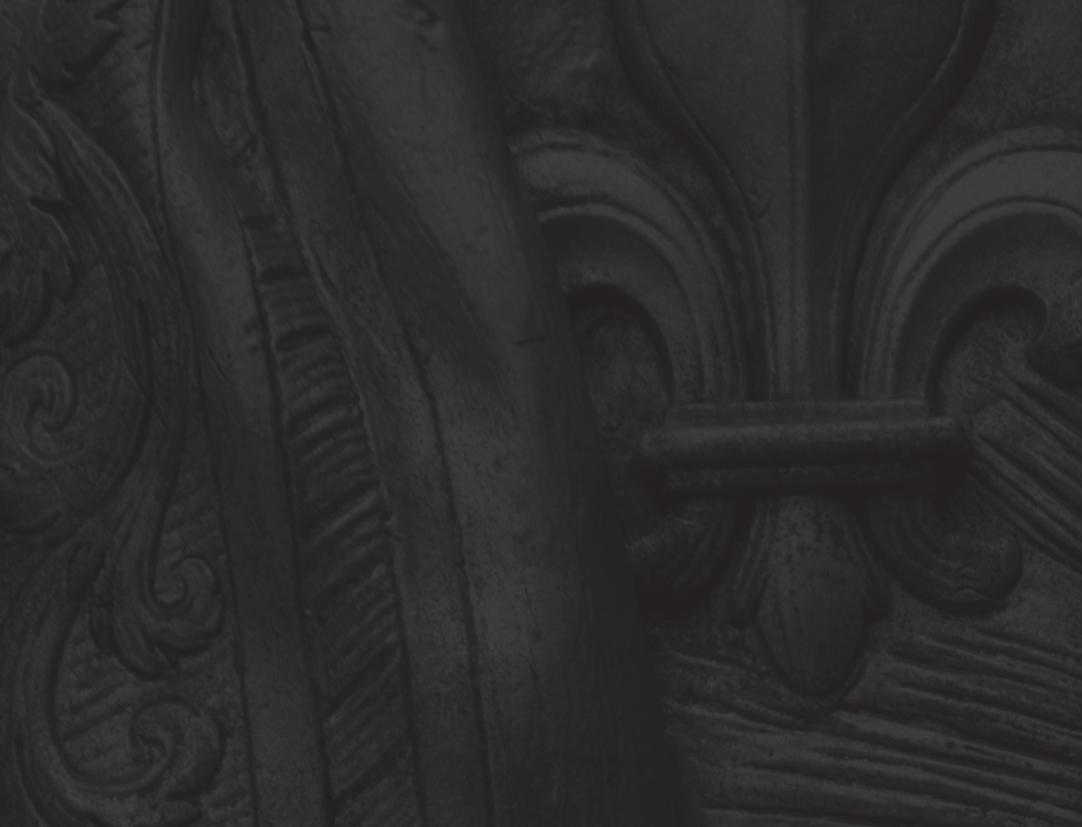
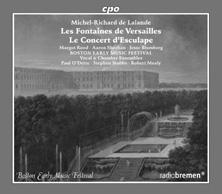
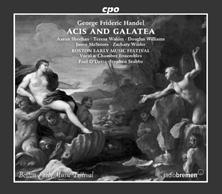


VIRTUAL AVAILABILITY: MARCH 8–22
Le Consort interprets the trio sonata repertoire with enthusiasm, sincerity, and modernity. Enjoy a whirlwind tour through Baroque Europe with masterworks by Bach, Vivaldi, Corelli, Purcell, Rameau, and others.
FRIDAY, APRIL 5 | 8PM
NEC’s Jordan Hall, Boston, MA
Early Music superstar Jordi Savall returns to Boston to explore the “new music” that took Europe by storm from 1560 to 1660.
VIRTUAL AVAILABILITY: APRIL 20 – MAY 4
FRIDAY, APRIL 19 | 8PM
St. Paul Church, Cambridge, MA
The story of Dante’s Divine Comedy and the journey from inferno to paradise is brought to life with breathtaking Renaissance music.
VIRTUAL AVAILABILITY: MAY 3–17


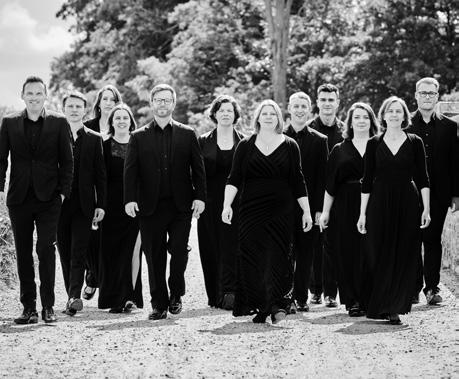
Boston Early Music Festival extends sincere thanks to the following individuals for their leadership support of our 2023/24 Season:
Bernice K. Chen
Sponsor of the April 2024 performance by Hespèrion XXI and Jordi Savall, Director
Sponsor of the Virtual performance by Hespèrion XXI
David M. Kozak and Anne Pistell
Sponsors of the December 2023 performance by The Tallis Scholars and Peter Phillips, Director
David Halstead and Jay Santos
Sponsors of the October 2023 performance by Le Poème Harmonique
Susan L. Robinson
Sponsor of the November 2023 performance by I Gemelli
Andrew Sigel
Sponsor of James Reese, tenor, and Jesse Blumberg, baritone, for the March 2024 performance by the BEMF Vocal & Chamber Ensembles
Sponsor of the Virtual performance by Stile Antico
Diane and John Paul Britton
Sponsors of Amanda Forsythe, soprano, for her February 2024 performance with Opera Prima
Donald E. Vaughan and Lee S. Ridgway
Sponsors of Zachary Wilder, tenor, for his November 2023 performance with I Gemelli
Not only do Named Gifts help provide the crucial financial support required to present a full season of extraordinary performances, but they are doubly meaningful in that they send a message of thanks to your most beloved artist, musicians, and directors—that their work means something to you.
You can help make this list grow. For more information about investing in BEMF performances with a Named Gift, please email Kathleen Fay at kathy@bemf.org, or call the BEMF office at 617-661-1812. Your support makes a difference. Thank you.

Paul O’Dette and Stephen Stubbs, Musical Directors
The Extravagant Musical Entertainments of Marco Marazzoli (ca. 1602–1662)
La Vendemmia
John Taylor Ward, Bacco
Mortali, o voi ch’in atra notte (text by Giovanni Lotti)
Aaron Sheehan, tenor
La Zenobia (text by Carlo Festini)
Teresa Wakim, Testo; James Reese, Radamisto; Carlotta Colombo, Zenobia
Aaron Sheehan, Armeno 1; Jesse Blumberg, Armeno 2; John Taylor Ward, Armeno 3
m INTERMISSION n
Il Riposo (text by Sebastiano Baldini)
Jesse Blumberg, Il Riposo; John Taylor Ward, Il Lago
James Reese & Aaron Sheehan, I Seguaci; Carlotta Colombo & Teresa Wakim, Le Ninfe
La Guerra e la Pace (text by Luc’Antonio Casini)
Teresa Wakim, La Guerra; Carlotta Colombo, La Pace
The Boston Early Music Festival thanks ANDREW SIGEL for his leadership support of tonight’s performances by James Reese, tenor, and Jesse Blumberg, baritone

Double-manual German harpsichord by Allan Winkler, Medford, Massachusetts, 1989, after Fleischer, property of the Boston Early Music Festival.
Continuo organ by Bennett & Giuttari, Rehoboth, Massachusetts, provided by New England Conservatory.
Saturday, March 2, 2024 at 8pm
New England Conservatory’s Jordan Hall 30 Gainsborough Street, Boston, Massachusetts
Friday, March 16, 2024 – Friday, March 30, 2024 BEMF.org
Teresa Wakim, soprano
Carlotta Colombo, soprano
Alissa Magee, soprano
James Reese, tenor
Aaron Sheehan, tenor
Jesse Blumberg, baritone
John Taylor Ward, bass-baritone
Sarah Darling, violin I
Jesse Irons, violin II
David Morris, viola da gamba & lirone
Maxine Eilander, Baroque harp
Michael Sponseller, harpsichord & organ
Paul O’Dette, chitarrone
Stephen Stubbs, theorbo & Baroque guitar
Program subject to change.
Ball Square Films & Kathy Wittman, Video Production
Antonio Oliart Ros, Recording Engineer
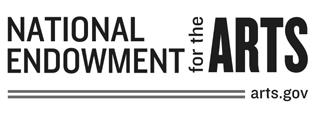





Boston Early Music Festival extends sincere thanks to the following individuals and institutions for their leadership support of the November 2023 performances of The Dragon of Wantley: o
Glenn A. KnicKrehm and Constellation Charitable Foundation Principal Production Sponsors
Lorna E. Oleck
Sponsor of Robert Mealy, Concertmaster, Melinda Sullivan, Choreographer, and Teresa Wakim, Margery
Andrew Sigel
Sponsor of Hannah De Priest, Mauxalinda, Aaron Sheehan, Moore, and John Taylor Ward, The Dragon
Bernice K. Chen
Sponsor of Gilbert Blin, Stage Director
Tony Elitcher and Andrea Taras
Sponsors of Kathleen Fay, Executive Producer
James A. Glazier
Sponsor of Stephen Stubbs, Musical Co-Director
David Halstead and Jay Santos
Sponsors of Paul O’Dette, Musical Co-Director
George L. Hardman
Sponsor of Gonzalo X. Ruiz, oboe
Harriet Lindblom
Sponsor of Michael Sponseller, harpsichord
Harold I. Pratt
Sponsor of Sarah Darling, viola
Donald E. Vaughan and Lee S. Ridgway
Sponsors of Douglas Williams, Gubbins
Kenneth C. Ritchie and Paul T. Schmidt
Sponsors of the pre-opera talks by Ellen T. Harris

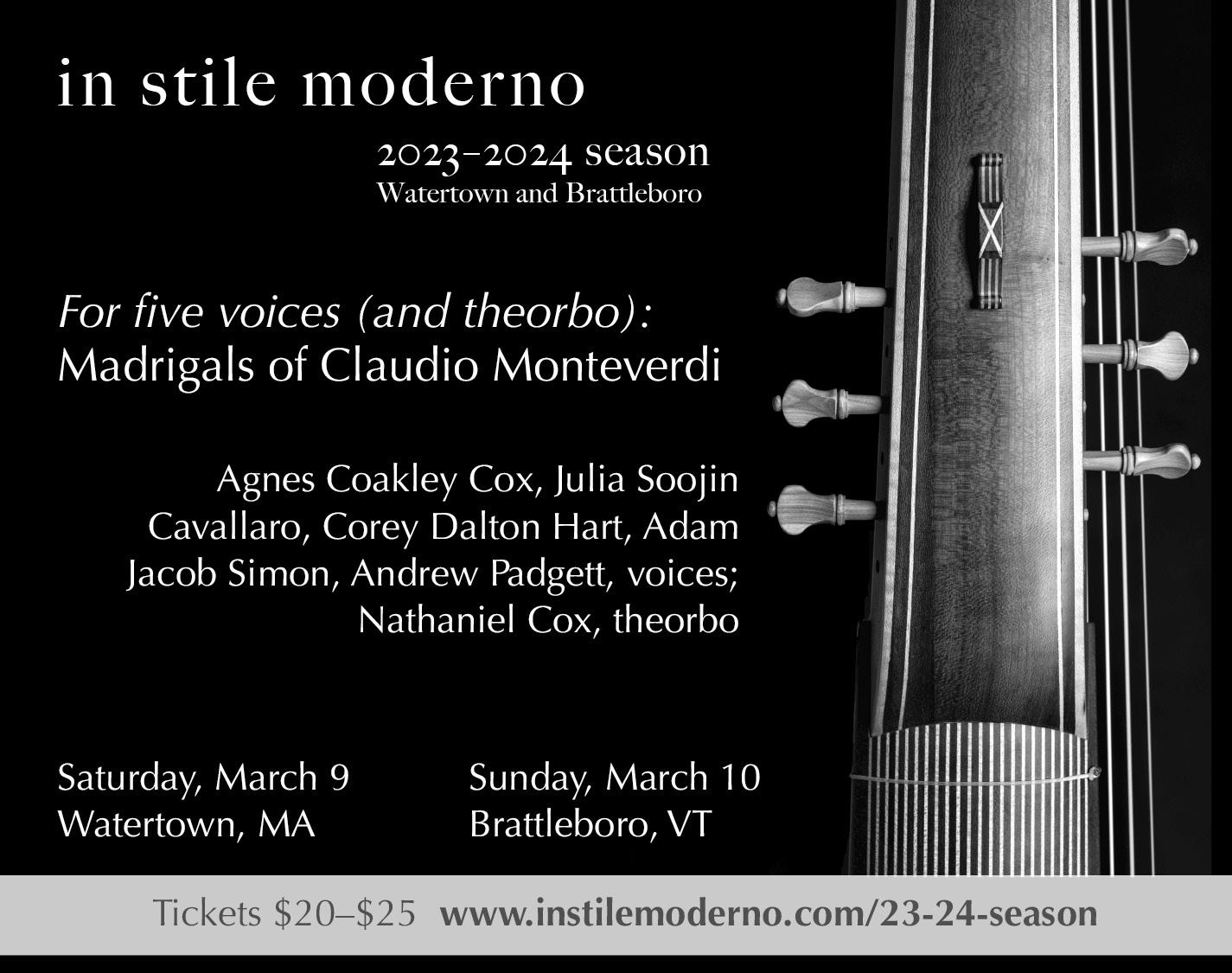
Our received notion of music history presents Venice and Florence as the two major musical centers in seventeenth-century Italy, with Mantua receiving mention as well, due to the residency of Monteverdi in that city from 1590 until 1613. Solo song was invented in Florence; Caccini’s manifesto about “the new music,” which ushered in the whole Baroque period, was published there, and it was there that the first operas were performed. Venice boasted the presence of such musical luminaries as Monteverdi (starting in 1613), Gabrieli, Cavalli, Castello, and Barbara Strozzi; it was the place where public opera was first established and where instrumental sonatas were first published.
On the other hand, the music of seventeenthcentury Rome has mostly flown under the radar, due in part to the lack of a vibrant music-publishing enterprise, leaving most of the glorious music composed in Rome to languish in manuscripts, some of which are barely legible. But between 1620 and 1660, Rome was home to the largest number of supremely gifted composers of vocal music anywhere in Europe. The cantatas, oratorios, and motets of dozens of these composers, most notably Luigi Rossi, Domenico and Virgilio Mazzocchi, Giacomo Carissimi, Stefano Landi, Orazio Michi, Carlo Caprioli, Girolamo Frescobaldi, and tonight’s featured composer, Marco Marazzoli, represent the pinnacle of early seicento vocal music, music which had a profound influence not only on the cantatas of Venetian composers, but especially on French music of the period. The cantatas of Rossi, Carissimi, and Marazzoli were particularly popular in France in the second half of the seventeenth century, circulating in numerous manuscripts commissioned by Cardinal Mazarin, chief minister of France. But due to the lack of modern editions of this repertoire, and the scholarly bias in favor of Florence and Venice, these works are still largely unknown except to a handful of specialists. This evening’s program focusses on a special subset of the repertoire, Marazzoli’s cantatas for six voices, two violins, and basso continuo. A total
of seven of these works survive, five of which we were able to fit on our program.

Marco Marazzoli (ca. 1602–1662) was a harpist, tenor, and composer who wrote more than 380 cantatas for one to six voices in addition to operas, oratorios, motets, and liturgical works. Marazzoli began working for Cardinal Antonio Barberini at the Palazzo Barberini around 1626, and continued serving the papal family for the rest of his life. He frequently traveled with the Cardinal to Urbino, Bologna, and Ferrara along with others from the Cardinal’s musical establishment, including Stefano Landi and Filippo Vitali. In 1642, Marazzoli went to Venice to present his opera, Gli amori di Giasone e d’Isifile in the Teatro SS Giovanni e Paolo, the same theater where Monteverdi’s last two operas were performed, Le nozze d’Enea in Lavinia the year before, and L’incoronazione di Poppea the year after. In 1643, the Cardinal facilitated an invitation from Cardinal Mazarin for Marazzoli to go Paris, where his works were enthusiastically received. The Queen was reportedly moved to tears upon hearing them, and she commissioned additional chamber cantatas from Marazzoli for the next two years. He returned to Rome in 1645, only to discover the Barberini family had been forced into exile by the new Pope Innocent X upon the death of the Barberini Pope Urban VIII. Deprived of his Barberini patronage during this period (1645–1653), Marazzoli began composing oratorios for the Oratorio del Santissimo Crocifisso, the venue for which Carissimi’s Jephte was written, along with many other important seicento oratorios. Upon the reconciliation of Pope Innocent’s family
(the Pamphili) with the Barberini in 1653, Cardinal Antonio Barberini commissioned Marazzoli to compose an opera, Dal male il bene in celebration of the wedding between the Pope’s niece and the son of Antonio’s brother Taddeo. The success of this production inspired Antonio to commission a new opera each year from Marazzoli, including Le armi e gli amori in 1655, and La Vita humana in 1656 in celebration of the arrival and conversion to Catholicism of Queen Christina of Sweden. Unfortunately, the plague that hit Rome in that year curtailed these operatic endeavors, and Marazzoli began working for the new Pope, Alexander VII, writing smaller-scale cantatas, including those heard on today’s program.
The six-voice cantatas of Marazzoli were composed late in his career, commissioned by Pope Alexander VII and designed for performance at the Vatican, the Palazzo Quirinale, and the papal retreat at Castel Gandolfo. While most of Marazzoli’s cantatas were written for solo voice and continuo, sometimes with the addition of strings, he also experimented with more extended cantatas involving four, five, and six voices, featuring Sinfonias, Ritornelli, recitatives, arias, duets, trios, choruses, etc., perhaps to compensate for the lack of opera productions. These largescale cantatas nevertheless show Marazzoli’s operatic ambitions, as they resemble miniature operas designed for performance by a chamber ensemble in music rooms of palaces. It is assumed that Marazzoli performed in these cantatas himself as a tenor as well as a harpist. He commissioned a spectacular triple harp, which survives in the Musical Instrument Museum in Rome, as well as a painting of that exact instrument by Giovanni Lanfranco, which hangs in the Palazzo Barberini today.
Shortly after these cantatas were composed, Marazzoli was injured during Mass at the Sistine Chapel on January 25, 1662, and died the following day.
The cantatas survive in nearly illegible autograph composing scores in the Vatican archives which are full of crossed out passages, rewritten parts, wrong notes, impossible to read bars, undecipherable texts, missing bars in
the continuo part, and other challenges which confront anyone wishing to create a modern performing edition. This is undoubtedly the main reason these works have not been performed in modern times, despite the extraordinary quality of the music itself.

La Vendemmia (text author unknown)
This cantata is a celebration of the harvest, inspiring each character in turn to praise their favorite Italian wines. The dizzying array of wines extolled seems to have been designed to flatter the vinous expertise of the papal audience. While some of the references are straightforward, others are quite obscure and will require the assistance of Italian ampelographers to refine my initial identifications.
Mortali, o voi ch’in atra notte
(text by Giovanni Lotti)
This text is in celebration of the Treaty of the Pyrenees, signed in November 1659, which
ended the war between France and Spain, thanks to the mediation of Pope Alexander VII. This treaty, in addition to establishing the border between the two countries at the Pyrenees, also stipulated the marriage of Louis XIV and Maria Teresa of Spain, an event celebrated in Paris in 1662 with Cavalli’s Ercole Amante (BEMF 1999). The references in the text to the Seine (in Paris) and the Ebro (in Spain) are obvious, while the “Austrian semigods” refers to the Habsburgs (Holy Roman Emperors) who ruled Spain during this period.
La Zenobia (text by Carlo Festini)
The story of Radamisto and Zenobia, based on Tacitus’s Annals of Ancient Rome, was featured in numerous Baroque operas, including Handel’s well-known Radamisto of 1720, but Festini’s poem set by Marazzoli presents a more historically straight-forward version of events. Radamisto, the son of Pharasmanes I of Iberia, had killed his uncle, Mitridate, the King of Armenia, a few years prior to the events in the cantata, taking the Armenian throne himself, but he is now being deposed by Tiridates (of Parthia) with Armenian assistance. Radamisto and his wife Zenobia are pursued by an onrushing Armenian mob, and Zenobia insists they flee, convincing Radamisto, who initially feels it would be unbecoming of a monarch to do so. Zenobia, her flight slowed by pregnancy and realizing they are about to be captured, asks her husband to kill her since that would be more honorable than to be killed by the barbaric enemy. Radamisto protests that he is incapable of killing the one he loves, but Zenobia is adamant and he finally stabs her just before the Armenians arrive, throwing her body into the river so they cannot find her. The moral of the story, “Love is sacrificed so that honor prevails,” may refer to a topical situation which has not yet been identified. The manuscript from which this cantata is taken is devoted to subjects of war and peace, with La Zenobia, the first cantata in the manuscript, representing war, the second cantata, Il Riposo, promoting peace, and Mortali, o voi ch’in atra notte, the resolution of war and peace as consummated in the Treaty of the Pyrenees.
Il Riposo (text by Sebastiano Baldini)
This story of peace and serenity takes place on the shores of Lago (Lake) Albano, where the papal retreat, Castel Gandolfo, is located. Il Riposo (Repose), represents the Pope (Alexander VII), who escapes the noise and tumult of Rome and the conflicts throughout the world to enjoy the beauty and tranquility of Lago Albano. Relaxing in his boat, enjoying the restorative Lake and its magical surroundings, the Pope is confronted by the angry Lake, who objects to his calm waters being disturbed by the waves and turbulence caused by the boat. The Lake enlists the support of two nymphs who confront Il Riposo and his followers. Eventually Riposo is able to persuade the Lake that they are both working to promote peace. “Where a God rests” (the Pope was considered God on earth) is “Paradise.” The snippy aside in the final chorus, commanding the Greek gods to be quiet, promotes the promise of Heaven, attained by following a true God (the Pope), to counter the Baroque infatuation with the secular Greek gods and goddesses.
La Guerra e la Pace
(text by Luc’Antonio Casini)
This piece is from a different manuscript than the previous three cantatas, but in many ways it provides the final chapter in the celebration of Pope Alexander’s role in facilitating the Treaty of the Pyrenees. The Pope is represented by Pace (Peace) who works to convince Guerra (War) to lay down her arms and join the side of Peace. While Asia may still be at war, Europe is now at peace thanks to him. Asia may soon be at peace as well due to his influence. A new hero, Pope Alexander VII, is the new Alexander the Great in Asia, and the new Augustus in Europe.
Our deepest gratitude to Alissa Magee and Alessandro Quarta for their assistance in helping to puzzle out the many difficult passages of notes and rhythms in these works, and Stephen Stubbs, Roger Freitas, Ellen Hargis, and Federico Ercoli for their work on the translations. n
—Paul O’Dette

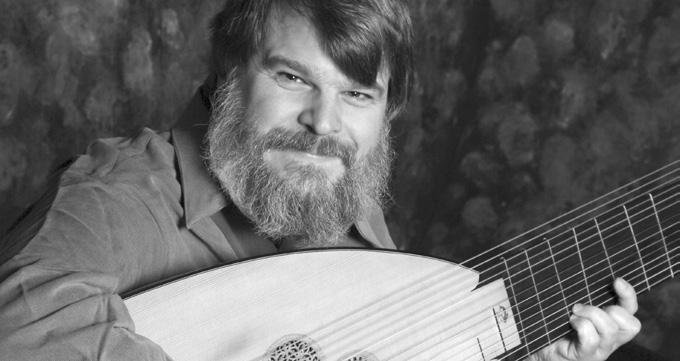
Paul O’Dette has been described as “the clearest case of genius ever to touch his instrument” (Toronto Globe and Mail). He appears regularly at major festivals the world over performing lute recitals and in chamber music programs with leading early music colleagues. Mr. O’Dette has made more than 150 recordings, winning two Grammy Awards and receiving eight Grammy nominations and numerous international record awards. The Complete Lute Music of John Dowland (a 5-CD set for harmonia mundi usa) was awarded the prestigious Diapason d’Or de l’Année, and was named “Best Solo Lute Recording of Dowland” by BBC Radio 3. The Bachelar’s Delight: Lute Music of Daniel Bacheler was nominated for a Grammy as Best Solo Instrumental Recording in 2006. While best known for his recitals and recordings of virtuoso solo lute music, Paul O’Dette is also active as a conductor of Baroque opera. Together with Stephen Stubbs he won a Grammy as conductor in 2015 for Best Opera Recording, as well as an Echo Klassik Award, for their recording of Charpentier’s La Descente d’Orphée aux Enfers with the Boston Early Music Festival Chamber Ensemble. Their CDs of Conradi’s Ariadne, Lully’s Thésée, and Lully’s Psyché, with the Boston Early Music Festival Orchestra on the CPO label, were nominated for Grammys in 2005, 2007, and 2008; their 2015 BEMF CD of Steffani’s Niobe, Regina di Tebe on the Erato/Warner Classics label was also nominated for a Grammy, and received both an Echo Klassik and the coveted Jahrespreis der deutschen Schallplattenkritik. Their recording of Charpentier’s Les Arts Florissants was nominated for a Grammy in 2019. In addition to his activities as a performer, Paul O’Dette is an avid researcher, having worked extensively on the performance of seventeenth-century Italian and English solo song, continuo practices, and lute repertoire. He has published numerous articles on issues of historical performance practice, and co-authored the John Dowland entry in the New Grove Dictionary of Music and Musicians. Paul O’Dette is Professor of Lute and Director of Early Music at the Eastman School of Music and Artistic Co-Director of the Boston Early Music Festival. He has received the Thomas Binkley Award from Early Music America, and the Eisenhart Award for Excellence in Teaching from the Eastman School of Music.
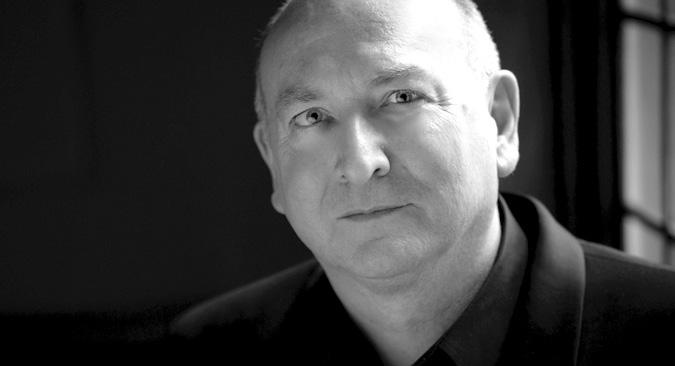
Stephen Stubbs, who won the Grammy Award as conductor for Best Opera Recording in 2015, spent a thirty-year career in Europe. He returned to his native Seattle in 2006 as one of the world’s most respected lutenists, conductors, and Baroque opera specialists. He now lives with his family in Agua Dulce, California. In 2007, Stephen established his new production company, Pacific MusicWorks (PMW), based in Seattle, reflecting his lifelong interest in both early music and contemporary performance. The company’s inaugural presentation was a production of South African artist William Kentridge’s acclaimed multimedia staging of Claudio Monteverdi’s opera The Return of Ulysses in a co-production with the San Francisco Museum of Modern Art. PMW’s performances of the Monteverdi Vespers were described in the press as “utterly thrilling” and “of a quality you are unlikely to encounter anywhere else in the world.” Stephen Stubbs is also the Boston Early Music Festival’s Artistic Co-Director along with his long-time colleague Paul
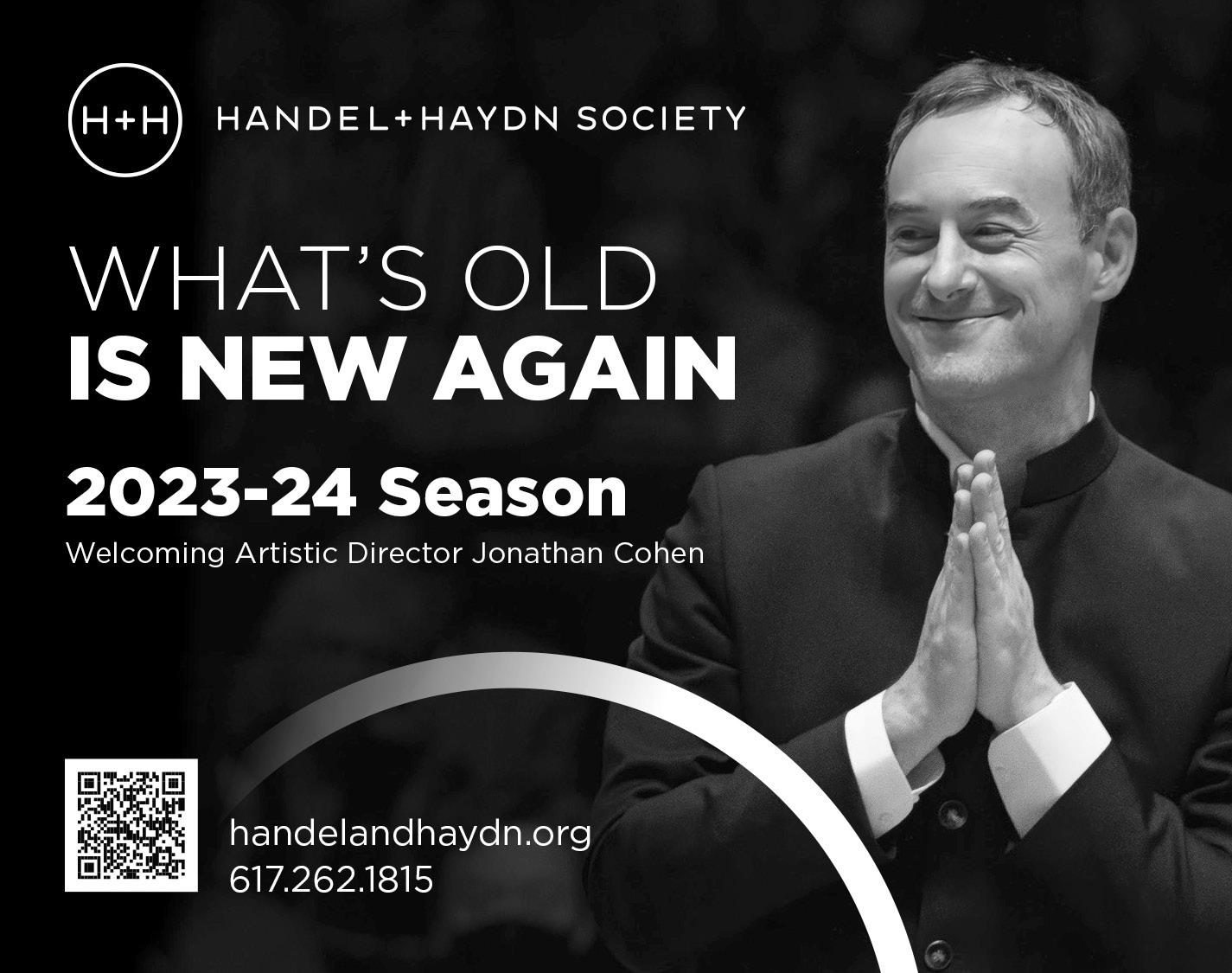
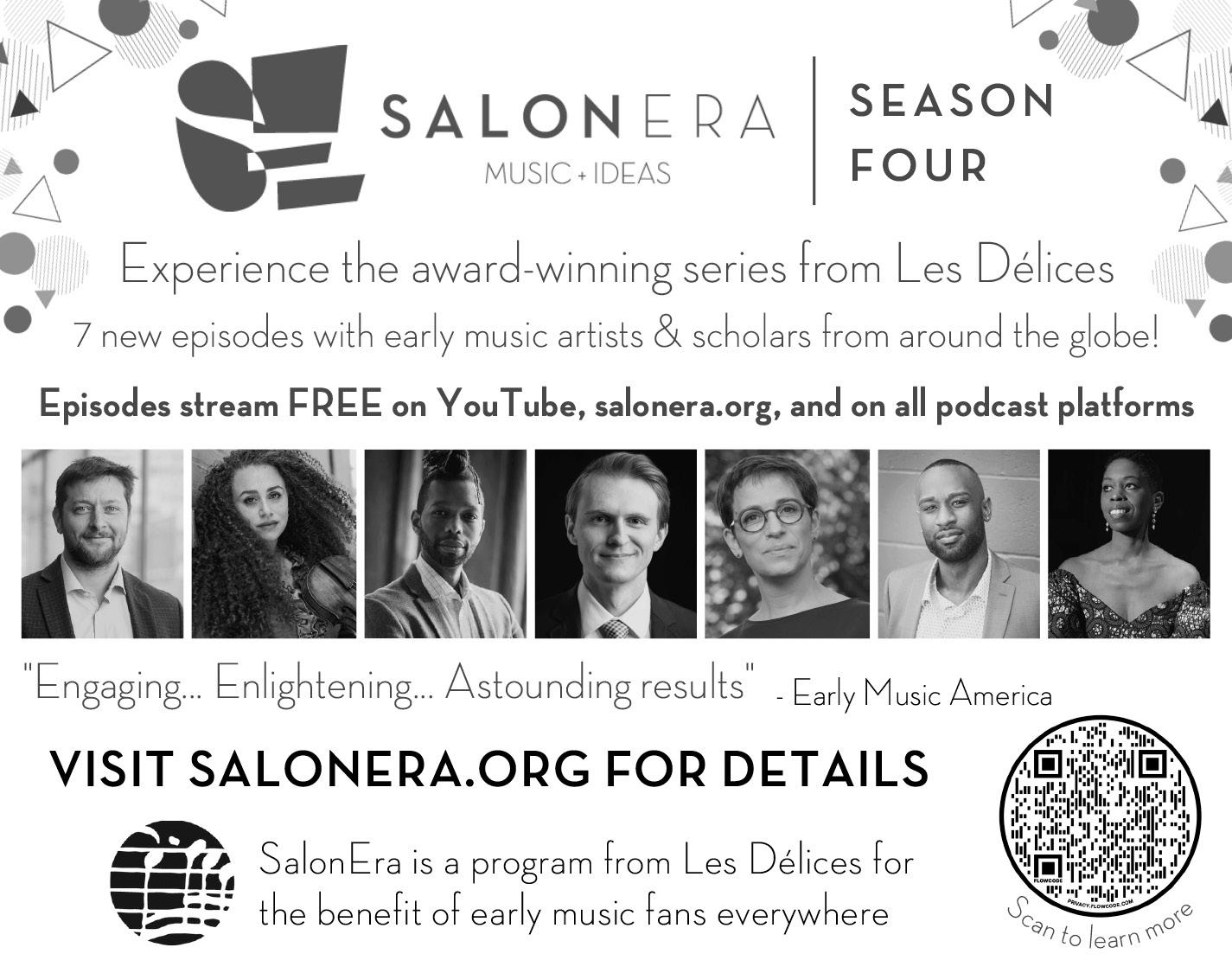
O’Dette. Stephen and Paul are also the musical directors of all BEMF operas, recordings of which were nominated for six Grammy awards, including one Grammy win in 2015. Also in 2015, BEMF recordings won two Echo Klassik awards and the Diapason d’Or de l’Année. In 2017, they received the Preis der deutschen Schallplattenkritik. In addition to his ongoing commitments to PMW and BEMF, other recent appearances have included Handel’s Giulio Cesare and Gluck’s Orfeo ed Euridice in Bilbao, Mozart’s Magic Flute and Così fan tutte for the Hawaii Performing Arts Festival, Handel’s Agrippina and Semele for Opera Omaha, Cavalli’s La Calisto and Rameau’s Hippolyte et Aricie for Juilliard, Mozart’s Il re pastore for the Merola program, and seven productions for Opera UCLA including Cavalli’s Giasone, Monteverdi’s Poppea, and Handel’s Amadigi. In recent years he has conducted Handel’s Messiah with the Seattle, Edmonton, Birmingham, Houston, and Nova Scotia Symphony orchestras. His extensive discography as conductor and solo lutenist includes well over 100 CDs, many of which have received international acclaim and awards.
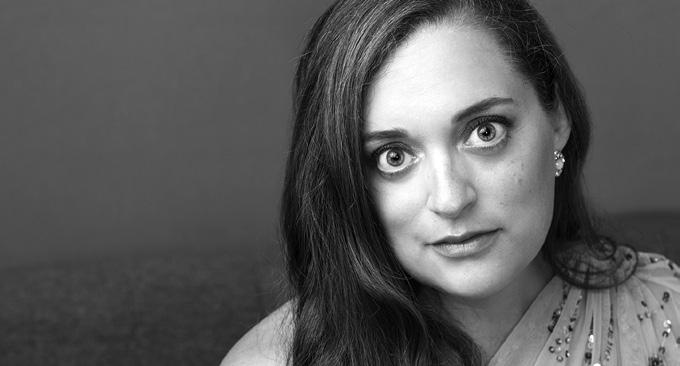
With a voice of “extraordinary suppleness and beauty” (New York Times), Grammy-nominated soprano Teresa Wakim won First Prize at the International Soloist Competition for Early Music, and has performed under the batons of Roger Norrington, Harry Christophers, Martin Haselböck, Ton Koopman, and Nicholas McGegan. Solo engagements include Bach’s Mass in B Minor, St. John Passion, and Magnificat with the Amsterdam Baroque Orchestra, Bach’s Wedding Cantata with the Cleveland Orchestra, Bach’s Missa Brevis with the San Francisco Symphony, Bach’s Magnificat and St. Matthew Passion with Wiener Akademie Orchester, Mozart’s Exsultate, jubilate with the Handel and Haydn Society and New World Symphony, and Handel’s Messiah with the Charlotte, San Antonio, Tucson, Alabama, and Houston Symphonies. In addition, she performs often with Pacific MusicWorks, Boston Baroque, Musica Angelica, Blue Heron, and the Boston Early Music Festival, with whom she has recorded ten albums, including their Grammywinning La Descente d’Orphée aux Enfers by Marc-Antoine Charpentier.
After graduating in Opera from the Conservatory in Como, Carlotta Colombo earned a Level II Diploma in Opera and Renaissance and Baroque singing, studying with Alessandra Ruffini and Roberto Balconi. She also received a First-Class Honours Degree in Philosophy from the University of Milan. She has performed at many prominent festivals and important concert halls, such as Bologna Festival, Urbino Musica Antica, Salzburger Festspiele, Schwetzingen Festival, Teatro alla Scala in Milan, Teatro Comunale in Ferrara, Boulez Saal in Berlin, Theater an der Wien, Opéra de Monte-Carlo, Teatro Juárez in Guanajuato, Croatian National Theatre in Zagreb, and many others. Carlotta has sung with prominent ensembles including Ensemble Zefiro, Concerto Romano, Il Pomo d’Oro, La Venexiana, laBarocca, European Union Baroque Orchestra, Les Musiciens du Prince, Boston Early Music Festival Orchestra, Orchestre National d’Auvergne, and Anima&Corpo, collaborating with many leading Baroque conductors. In 2022, she was named a finalist in the International Cesti Competition in Innsbruck. She has recorded for Glossa, Arcana, CPO, Dynamic, and Brilliant Classics.
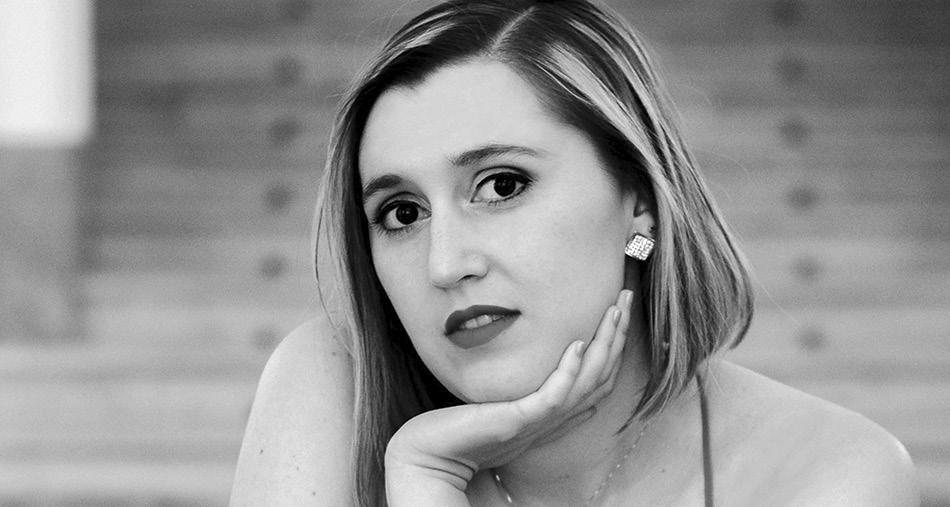
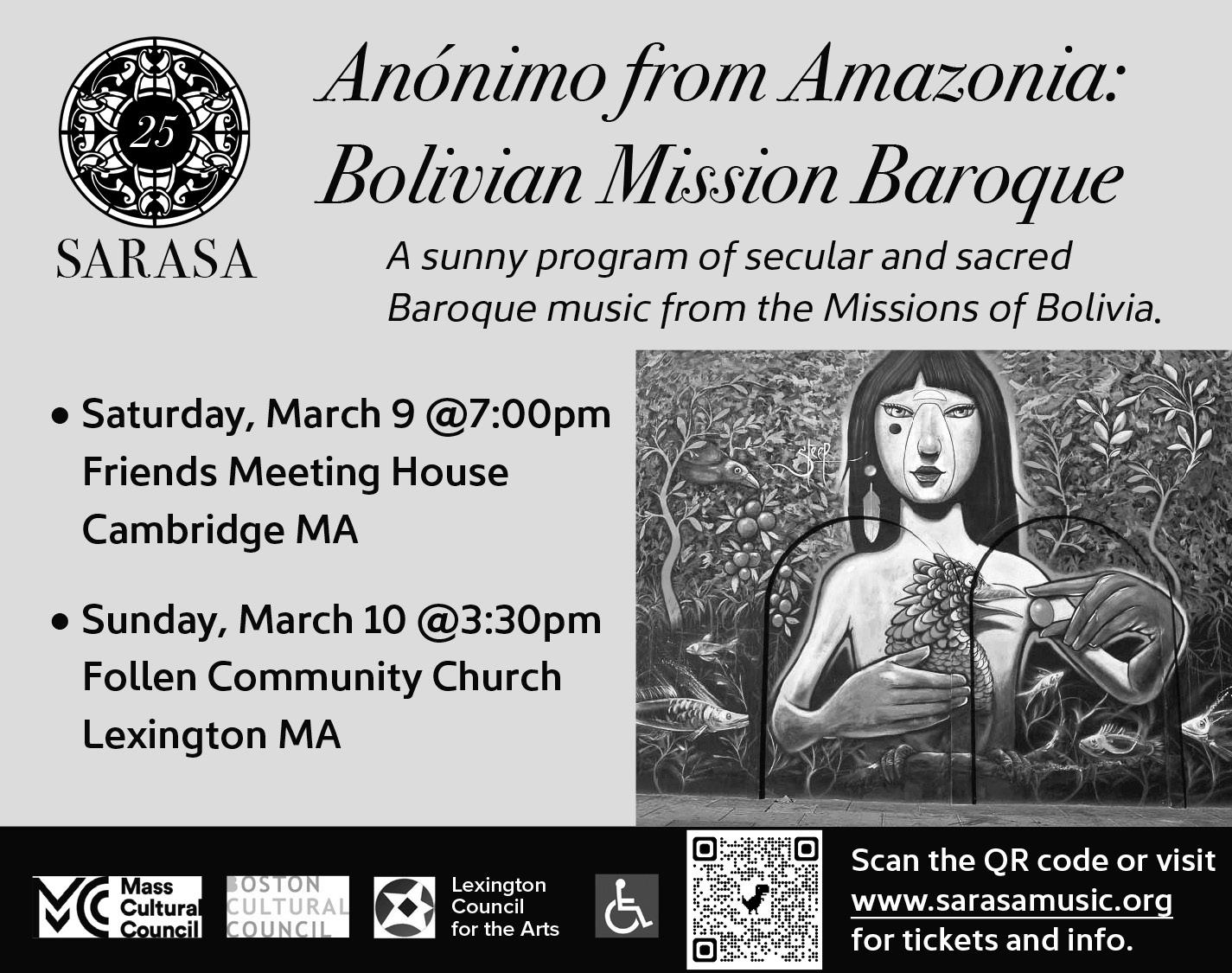


Alissa Magee is pursuing a D.M.A. in historical performance practice at Case Western Reserve University. Her recent performance highlights include Circé with the Boston Early Music Festival, Cephale et Procris with the BEMF Young Artists Training Program, Splendour in London with Apollo’s Fire, Messiah with Trinity Cathedral, and weekly Compline podcasts with Schola Cantorum Lorain. She has also just helped establish a monthly cantata series at First Lutheran Church of Lorain. This season, Alissa is most excited to be returning to BEMF for A Garden of Earthly Delights. This program is special to her because it features cantatas she transcribed several years ago as a beginning early music student. Having the opportunity to share music she fell in love with at the start of her studies feels like nothing short of a dream come true! Outside of singing and transcribing, Alissa also enjoys cooking all kinds of soup and learning how to sail.

James Reese is a frequently sought tenor soloist with leading orchestras and ensembles throughout North America and Europe. A noted interpreter of Baroque music, James gives performances that are both “splendid” (San Francisco Chronicle) and “captivating” (Broad Street Review). He made his début with BEMF in November 2022 in chamber operas of Lully and Charpentier, and returned in June 2023 to perform in the Festival’s centerpiece opera, Desmarest’s Circé. He regularly collaborates with notable ensembles including Philharmonia Baroque, Tafelmusik, the American Bach Soloists, and the Portland Baroque Orchestra. He won a Grammy Award as a soloist in 2023, appearing on the album Born released by The Crossing. James is also an active recitalist, frequently collaborating with pianist Daniel Overly in song recitals throughout the United States. He is a graduate of Northwestern University’s Bienen School of Music, and holds a Master’s degree from Yale University’s School of Music. He lives in Philadelphia.

Tenor Aaron Sheehan is a first-rate interpreter of the works of Bach, Handel, and Mozart. He sang the title role in Boston Early Music Festival’s Grammy Award–winning recording of Charpentier’s opera La Descente d’Orphée aux Enfers. He has performed at Tanglewood, Lincoln Center, the Metropolitan Museum of Art, Washington National Cathedral, the Early Music Festivals of Boston (BEMF), San Francisco, Vancouver, Washington D.C., Carmel, Regensburg, and the Halle Handel Festival, and with American Bach Soloists, Boston Baroque, Handel and Haydn Society, Orpheus Chamber Orchestra, Pacific MusicWorks, Philharmonia Baroque Orchestra, and Tafelmusik. His roles with BEMF include L’Amour and Apollon in Lully’s Psyché, the title roles in Charpentier’s Actéon, Monteverdi’s Orfeo, Steffani’s Orlando generoso, and Handel’s Acis and Galatea, Ulisse in Desmarest’s Circé, Demetrius in Graupner’s Antiochus und Stratonica, Apollon in Versailles: Portrait of a Royal Domain, Orfeo in Campra’s Le Carnaval de Venise, Eurimaco in Il ritorno d’Ulisse in patria, and Liberto/Soldato in L’incoronazione di Poppea. He recently performed in BEMF’s production of Lully’s Idylle sur la Paix and Charpentier’s La Fête de Rueil.
Baritone Jesse Blumberg has performed featured roles at Minnesota Opera, Boston Lyric Opera, Atlanta Opera, Pittsburgh Opera, Boston Early Music Festival, Opera Atelier, and at Château de Versailles Spectacles and London’s Royal Festival Hall. He has sung major concert works with Amsterdam Baroque Orchestra, American Bach Soloists, Boston Baroque, Apollo’s Fire, Oratorio Society of New York, The Saint Paul Chamber Orchestra, Early Music Vancouver, and on Lincoln Center’s American Songbook series. Jesse has been featured on nearly thirty commercial recordings, including the Grammy Award– and Echo Klassik–winning operas of Charpentier and Steffani with Boston Early Music Festival. His other recordings include Bach cantatas with Montréal Baroque, Winterreise with pianist Martin Katz, Rosenmüller cantatas with ACRONYM, and St. John Passion with Apollo’s Fire. He is also the founding artistic director of Five Boroughs Music Festival in New York City, and has served as a guest instructor of voice at Cleveland Institute of Music.


John Taylor Ward performs with “stylish abandon” (The New Yorker), “intense clarity and color” (New York Times), and “finely calibrated precision and heartrending expressivity” (Washington Post). Before pursuing opera and early music studies at the Eastman and Yale Schools of Music, he spent his early years living a double life as both a soughtafter musical theater actor and an Anglican boy treble. Taylor’s “lithe, louche, and admirably game” approach to the repertoire (Opera News) has yielded recent acclaimed débuts at Spoleto USA in the premier of Unholy Wars; Mexico’s Compañía Nacional de Teatro, starring in Iannis Xenakis’ Oresteia; and Vienna’s Musikverein as Jesus in Bach’s St. Matthew Passion. Notable DVD releases include the role of Nick Shadow in The Rake’s Progress with Barbara Hannigan, Proteo in Orfeo Chamán with Christina Pluhar and L’Arpeggiata, and an upcoming documentary series on the life and works of Claudio Monteverdi with the English Baroque Soloists. Taylor is the founding artistic director of the Lakes Area Music Festival of Minnesota.
The Boston Early Music Festival Vocal Ensemble débuted in November of 2008 in Boston with John Blow’s Venus and Adonis and MarcAntoine Charpentier’s Actéon. The ensemble is a collection of fine young singers dedicated to presenting choice operatic and other treasures as both soloists and members of the chorus, under the leadership of BEMF Artistic Directors Paul O’Dette and Stephen Stubbs. The BEMF Vocal and Chamber Ensemble’s début recording of Charpentier’s Actéon, on the CPO label, was released in November 2010. Subsequent CPO releases include Blow’s Venus and Adonis in June 2011, the Charpentier opera double bill of La Descente d’Orphée aux Enfers and La Couronne de Fleurs in February 2014, which won the Grammy Award in 2015 for Best Opera Recording and the 2015 Echo Klassik Opera Recording of the Year (17th/18th Century Opera), Handel’s Acis and Galatea in November 2015, Charpentier’s Les Plaisirs de Versailles and Les Arts Florissants, which was nominated for a Grammy in 2019, and

Lalande’s Les Fontaines de Versailles and Le Concert d’Esculape in September 2020. The BEMF Vocal Ensemble has mounted successful tours of its chamber opera productions, including a fourcity North American Tour of Acis and Galatea in early 2011 that included the American Handel Festival in Seattle, and a North American Tour of the Charpentier double bill in 2014.

Described as “a tireless force of musical curiosity, skill, and enthusiasm” and “the one to up the ante” (Boston Musical Intelligencer), Sarah Darling enjoys a varied musical career as a performer, educator, and musical coconspirator on viola and Baroque violin. She is a member of the self-conducted orchestra A Far Cry, as well as Boston Baroque, Musicians of the Old Post Road, Emmanuel Music, Boston Ballet Orchestra, Les Bostonades, Newton Baroque, Boston Camerata, Boston Early Music Festival, and Carmel Bach Festival. Sarah studied at Harvard, Juilliard, Amsterdam, Freiburg, and New England Conservatory, and worked with James Dunham, Karen Tuttle, Wolfram Christ, Nobuko Imai, and Kim Kashkashian. She has recorded old and new music for Linn, Paladino, Azica, MSR, Centaur, and Crier Records, plus a solo album on Naxos. Sarah is active as a teacher and coach, relishing the opportunity to “translate” between musical worlds while serving on the faculty of the Longy School of Music and co-directing the Harvard Baroque Chamber Orchestra.
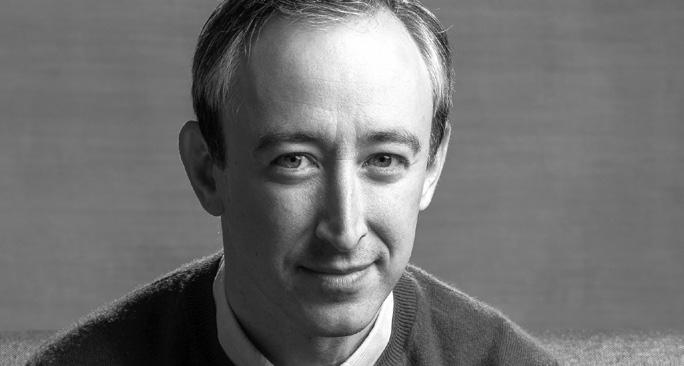
Jesse Irons enjoys a busy and excitingly diverse musical life. He is the Assistant Concertmaster of Boston Baroque and appears regularly with the Handel and Haydn Society, the Boston Early Music Festival, and with numerous small ensembles including Gut Reaction and Musicians of the Old Post Road. He has appeared as soloist with Newton Baroque, Sarasa, Chicago’s Baroque Band, and the City Orchestra of Hong Kong. Always up for experimenting with music old and new, Jesse recently performed an entirely improvised 1690s-style violin sonata in concert with keyboardist Andrus Madsen. This season also saw him appear as soloist in Vivaldi’s Four Seasons with the Minnesota Opera Orchestra, in a special new version algorithmically altered based on the 2050 United Nations Climate Model, reimagining Vivaldi’s piece in the context of a projected future in which nothing has been done to curb climate change. Jesse lives in the Boston area with his wife Emily, daughter Isabelle, and baby Ennis.

David Morris has performed across the U.S., Canada, and Europe on Baroque violoncello, viola da gamba, lirone, and bass violin. He has been a continuo player for the Boston Early Music Festival’s opera productions since 2013 and is a member of Quicksilver, the Galax Quartet, and the Bertamo Trio. He is a frequent guest performer on the New York State Early
Music Association and Pegasus Early Music series and has performed with Tafelmusik, the Boston Symphony Orchestra, Seattle’s Pacific MusicWorks, and the Mark Morris Dance Group. He has produced operas for the Berkeley Early Music Festival and the SF Early Music Society series and has been a guest instructor in early music performance-practice at Cornell University, Amherst College, Oberlin College, the University of Colorado at Boulder, UC Berkeley, and the SF Conservatory of Music. He has recorded for Harmonia Mundi, New Albion, Dorian, Drag City Records, CBC/Radio-Canada, and New Line Cinema.
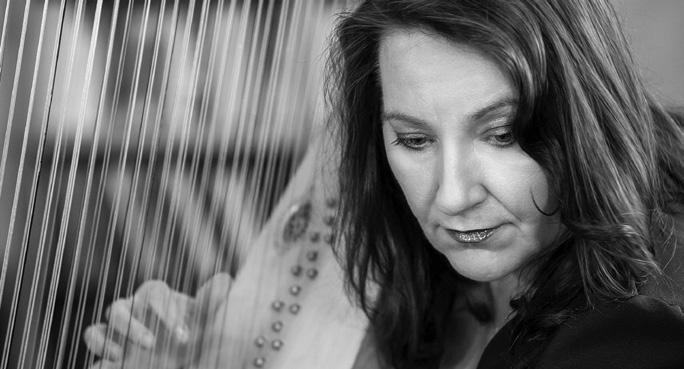
Maxine Eilander has been performing on historical harps throughout Europe and the United States for over three decades. She is the harpist for Pacific MusicWorks in Seattle and the Boston Early Music Festival. Recordings featuring Maxine as a soloist include Handel’s Harp, released on ATMA, with all of Handel’s obbligato music written for the harp, including his famous harp concerto, which she has also recorded with Tafelmusik (A Baroque Feast, Analekta). The release of William Lawes’ Harp Consorts on ATMA garnered much favorable press. Other recordings include Sonata al Pizzico, a recording of Italian music for harp and Baroque guitar with duo partner Stephen Stubbs (ATMA), and Teatro Lirico (ECM). In 2012, Maxine was invited to perform Handel’s Harp Concerto at the prestigious World Harp Congress in Vancouver. Maxine is adjunct professor of historical harps at the Thornton School of Music, USC. She was recently invited to The Juilliard School to coach students of the Historical Performance Department. She also teaches students nationwide online.

Michael Sponseller is recognized as one of the outstanding American harpsichordists of his generation. A highly diversified career brings him to festivals and concert venues all around the world as recitalist, concerto soloist, and active continuo performer on harpsichord, organ, and fortepiano. After studies at the Oberlin Conservatory of Music with Lisa Goode Crawford and Royal Conservatoire The Hague, he garnered prizes at the International Harpsichord Competitions of Montréal and Bruges, including First Prizes at both American Bach Soloists and Jurow International Harpsichord Competitions, all before the age of twenty-five. Since then, Mr. Sponseller appears regularly as harpsichordist and continuo organist with such Baroque ensembles as Aston Magna, Washington Bach Consort, Boston Early Music Festival Orchestra, Atalante, Tragicomedia, and Pacific MusicWorks, and with the Los Angeles Philharmonic. He is a regular presence at Boston’s Emmanuel Music Bach Cantata Series. In 2014, he became Associate Director of Bach Collegium San Diego. Mr. Sponseller can be heard on over twenty recordings from CPO, Avie, Delos, Centaur, Eclectra, and Naxos.
The Boston Early Music Festival Chamber Ensemble was established in October of 2008, and delighted the public a month later at the inauguration of the Boston Early Music Festival Chamber Opera Series, which débuted in Boston with a production of John Blow’s Venus and Adonis and Marc-Antoine Charpentier’s Actéon. The BEMF Chamber Ensemble is an intimate subset of the BEMF Orchestra. Depending upon the size and scale of a project,
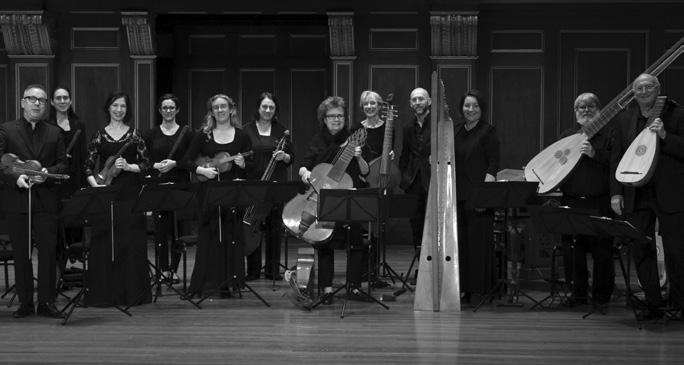
the BEMF Chamber Ensemble is led by one or both of BEMF’s Artistic Directors, Paul O’Dette and Stephen Stubbs, or by BEMF’s Orchestra Director Robert Mealy, and features the best Baroque instrumentalists from around the world. The BEMF Chamber Ensemble’s third CD on the CPO label, the Charpentier opera double bill of La Descente d’Orphée aux Enfers and La Couronne de Fleurs, won the Grammy Award in 2015 for Best Opera Recording. Their fifth CD, Steffani’s Duets of Love and Passion, featuring sopranos Amanda Forsythe and Emőke Baráth, tenor Colin Balzer, and baritone Christian Immler, was released in September 2017 in conjunction with a six-city tour of North America, and received a Diapason d’Or. Their sixth CD—of Johann Sebastiani’s 1663 Matthäus Passion—was recorded immediately prior to their presenting a concert of the work at the prestigious Musikfest Bremen, and was released in February 2018. The seventh CD, a return to Charpentier featuring Les Plaisirs de Versailles and Les Arts Florissants, was nominated for a Grammy in 2019; the eighth, Lalande’s Les Fontaines de Versailles and Le Concert d’Esculape, was released in September 2020; and the ninth, of Pergolesi’s La serva padrona and Livietta e Tracollo, was released in December 2023.

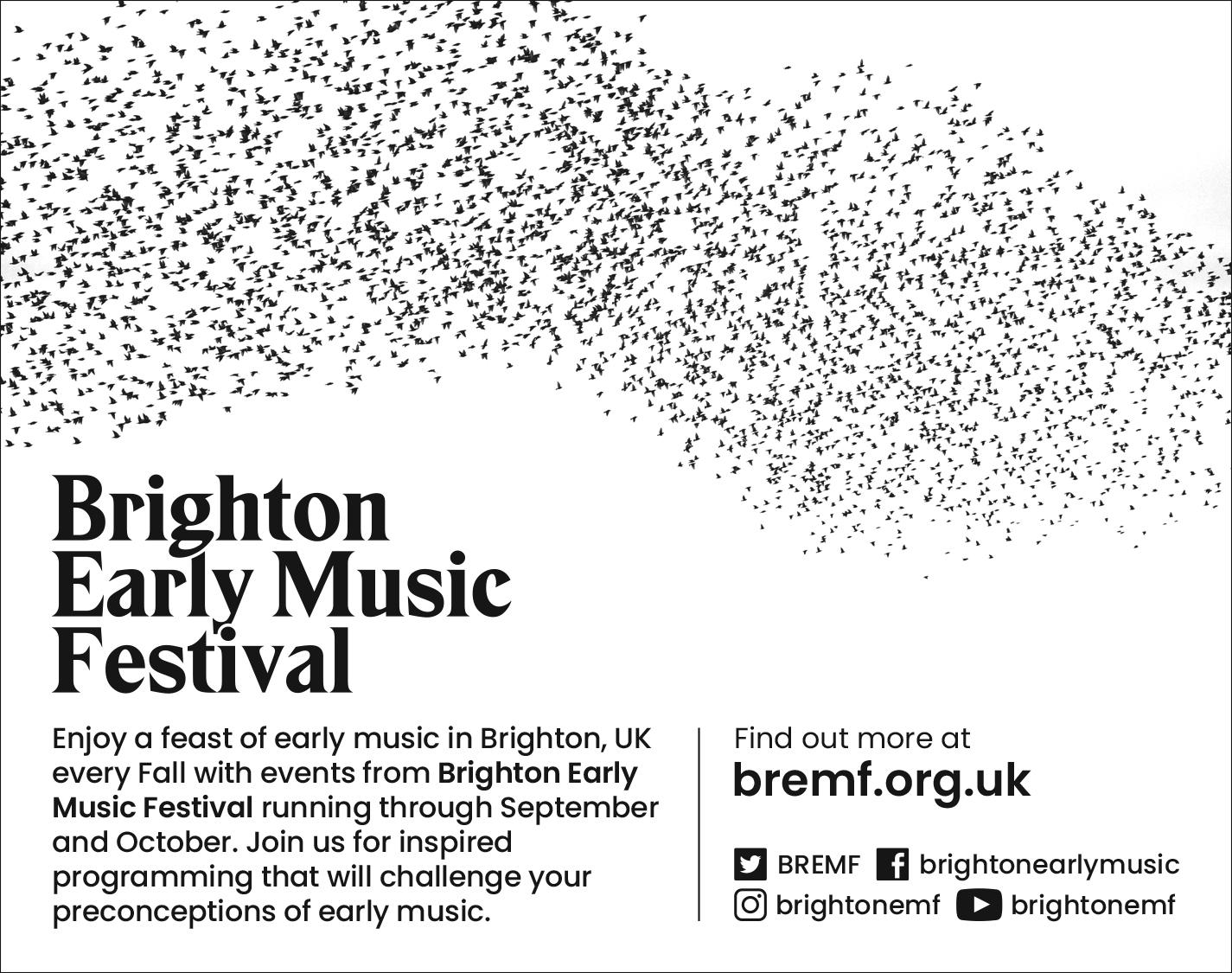
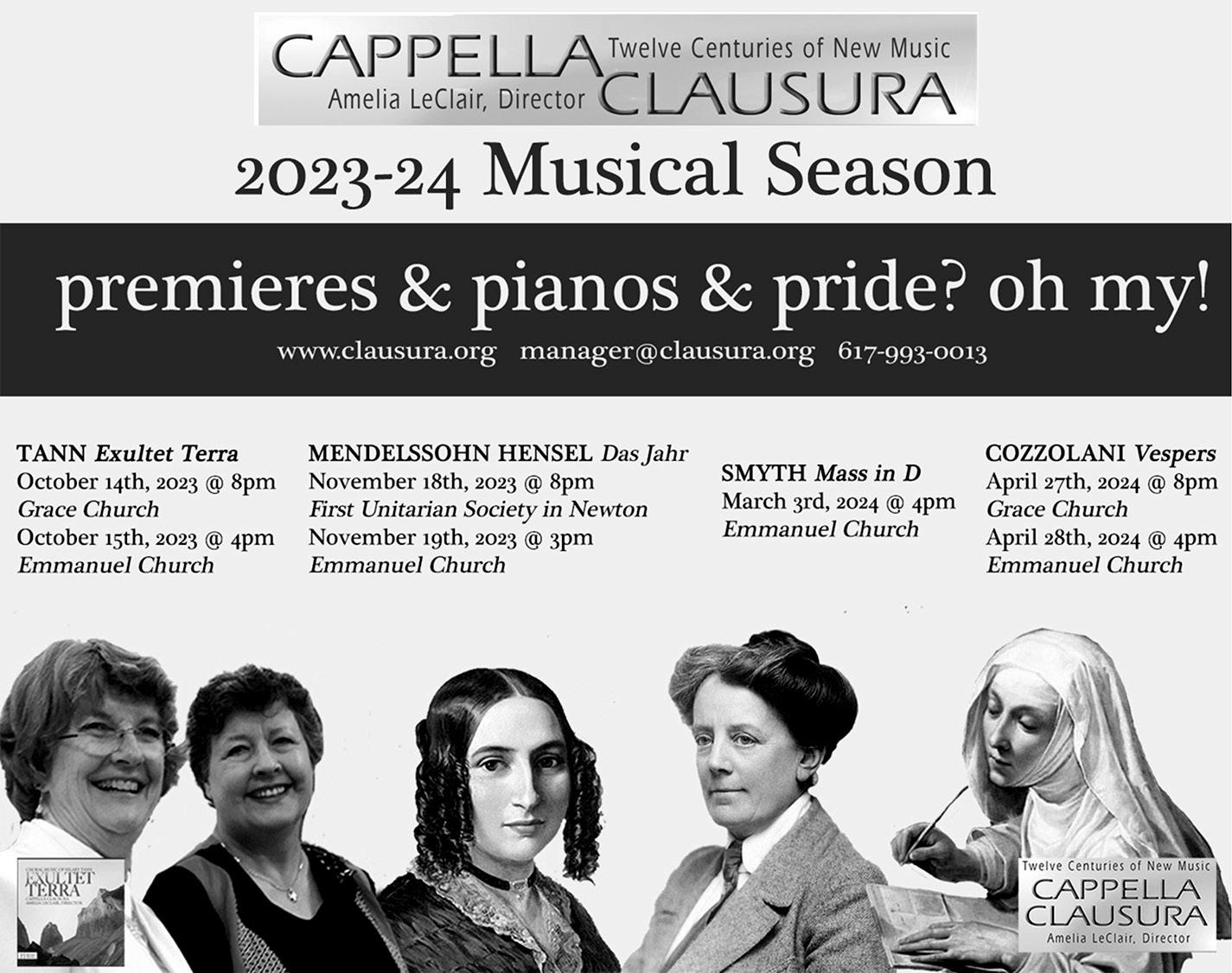
Sinfonia
Bacco
Al Tirso della mano, al verde pampano
Che mi circonda il crin misto co’l Edere,
A queste gote, che vermiglie avvampano
Voi che Bacco son’ io potete credere.
Son quel io che adora il Gange
Che per voi, vo’ tutto in sangue
Io vigor d’alma che langue
Io consolo un cor che piange
Tra l’esequie hebbi i natali
E tra i fulmini e i baleni, pur recando i dì sereni, Sono al mondo oblio de’ mali
Son’ quel che mentre nasco acerbo prole
Giove ancor genitrice essermi vuole.
A voi piagge e d’alba antica
Vengo a te, colle sublime, a goder su le tue cime nuovi rai di stella amica.
So che l’Eroe che in Vatican s’adora
Le mie vendemmie in questi poggi honora.
Su prendete o miei ministri
Agatirsi e Coribanti
E voi Menadi e Baccanti
A sonar crotali e sistri
Rimbombando evoè ogni eco
Il vostro piè vada girando intorno dei colli di Gandolfo al bel soggiorno.
A 6
Rimbombando evoè ogni eco
Il vostro piè vada girando intorno dei colli di Gandolfo al bel soggiorno.
Sinfonia
Soprano 1
Signor, già corre alla vendemmia usata
Del paese la rustica brigata
Sinfonia
Bacchus
With my staff in my hand, with the green vine that—mixed with ivy—encircles my hair, and with these cheeks that blaze with vermilion, you can believe that I am Bacchus.
I am he, whom the Ganges worships, Who, for you, enters into your blood; I invigorate the soul that languishes, I console a heart that weeps.
My double birth came amongst the funeral rites and amidst the thunder and lightning. Yet, with the return of serene days, I allow the world to forget its troubles; I am he whom, though born premature, Jupiter still wanted to father.
To you slopes of ancient Alba, To you lofty hills I come to enjoy on your summits the new rays of the friendly star.
I know that the hero revered in the Vatican [the Pope] honors my harvest in these [Roman] hills.
Come, O my followers, the Agathyrsi and Corybantes, and you Maenads and Bacchantes: play the crotales and sistra; let every echo resound with “Evoè”! Walk around the hills of [Castel] Gandolfo for a pleasant sojourn.
A 6
Let every echo resound with “Evoè”! Walk around the hills of [Castel] Gandolfo for a pleasant sojourn.
Sinfonia
Soprano 1
Lord, the rustic company is already running from the village to the customary harvest.
Bacco
In sì belle pendici
Chiedono aita a voi gli hospiti amici
Soprano 2
O primo domator de flutti eoi.
Alto
O delizia del mondo
A 4
Dolce nume giocondo
Ecco tutti siam pronti a cenni tuoi
Bacco
Io da viticchi opachi
A sveller prendo i grappoli fecondi
Soprano 1
Et io distinguerò de raspi i vachi
Da i più negri i più biondi.
Alto
Io su la testa mia voglio ben presto Colma d’uva portar fescina, o cesto.
Tenor
Io, la madre del vino
Con nudo piè sviscerarò nel fino.
Bacco
Et io, che buono ad altro esser non voglio Farò ch’il ventre mio serva per doglio.
A 5
Su, su, si corra all’opra
Ciascun nel suo mestier pronto si scopra.
Soprano 2
Ma in sì lungo viaggio
Io che le fauci ho sordide di polve…
Alto
Io cui del sole il raggio
Tutto in sudor risolve.
Soprano 1 & Soprano 2
Noi giovanetti insoliti al digiuno
Senza riposo alcuno
Senza pieno ristoro
Troppo saremo inabili al lavoro
Bacco
Ecco in più vetri immersi entro del giaccio
Vario liquor imprigionato gela
Bacchus
On such lovely hills, the friendly guests are asking you for help.
Soprano 2
O first conqueror of the eastern waves,
Alto
O delight of the world,
A 4
Sweet happy god: here we all are, ready for your orders!
Bacchus
From dark vines
I pull the fertile clusters.
Soprano 1
And I will sort the grapes from the stems, the lighter ones from the darker.
Alto
I soon want to carry on my head a tub, or basket full of grapes.
Tenor
I will crush with bare feet, until smooth, the mother of the wine.
Bacchus
And I, who does not want to do anything better, will make my belly serve as the barrel.
A 5
Hurry up, quickly get to work; let’s all show ourselves ready in our craft.
Soprano 2
But on such a long journey
I whose mouth is grimy with dust…
Alto
I whom the sun’s rays totally melt into sweat…
Soprano 1 & Soprano 2
We youths, unused to going without eating, without any rest at all, without a real refreshment, will be entirely unable to work.
Bacchus
Behold, in many bottles immersed in ice various imprisoned liquids freeze,
Onde da man reale a noi si svela
Un Autunno spumante al verno in braccio.
E dover si godete
I doni di colui, Che sempre a pro d’altrui Benefico vedete.
Soprano 1 & A 5
Non sia cor sì villano, Che col calice in mano
Nieghi render le gratie a lui dovute
S’annuntii al gran Pastor vita e salute.
Sinfonia
A 3
O d’ambra o vermiglie
Rugiade novelle
Più dolci di quelle
Che all’Alba son figlie
Sia d’ambrosia sì soave
Ogni nappo adorno è grave.
Bacco
Quel che a voi più fa pro
O fumoso, o gentile, o d’oro, o d’ostro È pronto al piacer vostro
Quello che aggrada più sceglier si può.
Soprano 1
Voglio quel di musco ripieno
Che Falisco monte ne manda
O de’ colli di Trasimeno
Odorifera la bevanda.
Alto
Un più lontano Autunno
Io sol cerco, e desio
Che da gli scogli fertili
Di Scio suol peregrino
A noi portar Hetunno.
Tenor
Falerno a diluvio, ch’è pieno d’orgoglio
O pur del Vesuvio
Le lacrime io voglio.
by which a royal hand reveals to us a sparkling Autunno [Rosé] in the arms of winter. And you must enjoy the gifts of him who, always for the good of others, you see as beneficial.
Soprano 1 & A 5
Let there be no heart so uncouth, that with chalice in hand fails to give the thanks owed to him. Let life and health be predicted for the great shepherd.
Sinfonia
A 3
Either amber or vermilion, the new Rugiade [blush wine], is sweeter than those that are the daughters of Alba [Frascati], Whether it be of such sweet ambrosia, every ornate goblet is heavy.
Bacchus
Whichever avails you most— the smoky, the delicate, the golden, the purple— is ready for your pleasure. You can choose the one that most pleases you.
Soprano 1
I want the very musky one that comes from Montefiascone [Est! Est!! Est!!!] or the perfumed drink from the hills around Lake Trasimeno [Vino Nobile].
Alto
I seek and desire only a distant autumnal [wine], which from the fertile cliffs of Chios [a Greek Island], the pilgrim Hetunno usually brings us.
Tenor
I want a flood of Falerno [wine from Monte Massico], which is full of arrogance, or the “Lacryma Christi di Vesuvio” [Tears of Christ from Vesuvius].
Soprano 2
Del mio grado sì la gratia
Che ha l’odor della viola
Più mordace, più consola
Più si bee manco ne satia.
Bacco
O del sol chiaro assai più
Quasi manna a noi stillato
Madre in terra, Alba ti fu
Ma nel ciel, par che sei nato.
Soprano 1 & Soprano 3
Voi pendici
genitrici
Di sì nobile tributo
Voi mariti
delle viti
D’oro gravide saluto.
A 5
Su, su via da noi concordi
Mentre il vento arride in poppa
T’avvicini ai labri ingordi
Pria che naufraghi la coppa.
Viva Alessandro e regni
E perché sian di Belo
Sommersi nell’Eufrate idoli indegni
Arrida ai voti suoi propitio il cielo.
Bacco & A 6
Hor senza intervallo
Con labra mordaci
Di nuovo si baci
L’amato cristallo.
Sinfonia
Soprano 1
Beve nettare la mia bocca
Che a noi verde vien dall’Etruria
O l’amabile di Liguria
Dal mio calice sol trabocca
Alto
Nel mio vaso cristallino al rubino
Mosto eguale ondeggia e bolle
Le vendemmie più sanguigne
Delle vigne
manda a noi d’Etruria un colle.
Soprano 2
Much to my taste is Gratia [probably Valtellina wine], which smells like violets; the more pungent it is, the more it cheers you up; the more you drink, the less you are quenched.
Bacchus
O much brighter than the shining sun, [you are] dripped to us as if manna; Albano was your mother on earth, but it seems you were born in heaven [Frascati].
Soprano 1 & Soprano 3
I hail you hills, mothers of such a noble tribute [and] your husbands of the vines full of gold.
A 5
Come quickly with us who agree: while the wind is favorable to the ship may you get near the greedy lips before the goblet is shipwrecked.
Long live [Pope] Alexander and long may he reign, and because the shameful idols of Baul are submerged in the Euphrates, may propitious heaven grant his prayers.
Bacchus & A 6
Now without rest, with hungry lips, let’s kiss again the beloved goblet.
Sinfonia
Soprano 1
My mouth drinks nectar that comes green from Tuscany, or the sweet one of Liguria which overflows from my glass.
Alto
In my crystal vessel, like a ruby, the must both ripples and churns; the most blood-red harvest of grape vines sends us a hill from Tuscany [Chianti].
Tenor
Manda il Rodano un suo figlio
Spiritoso ma gentile
Perché chiaro è il suo vermiglio
Serba ancor nome simile.
Soprano 2
Questo io bevo e giorno, e notte
Porporino e generoso
E pur nato e nelle grotte
Habita ascoso.
Bacco
Questo, questo vogl’io che spuma e brilla
Del color delle fiamme
Che del bel Citinal in regia villa
Della lupa toscana offron le mamme.
A 6
Il cielo accresca a voi
O gloria degli eroi
Perché regni la pace e la virtute
Allegrezze trionfi anni e salute.
Mortali, o voi ch’in atra notte
Tenor
Mortali, o voi ch’in atra notte avvolti
Di turbini guerrieri
Condannaste ad ogn’or gl’egri pensieri
A i più torbidi affanni, e gli occhi a i pianti,
Su su lieti e festanti
Bandite le pene, Chiamate la spene
A libertà ridente
Spunta l’alba di pace in Occidente.
Coro
Su su lieti e festanti
Bandite le pene, Chiamate la spene
A libertà ridente
Spunta l’alba di pace in Occidente.
Soprano 2
Alba, che cinta il crin di quei bei fiori, Che son di Senna i più superbi honori,
Soprano 3 & Bass 1
Già dileguato il bellicoso Verno
Ne riporta serena un Maggio eterno.
Tenor
The Rhone sends one of its children, spirited but delicate; because its vermilion is bright, it retains a similar name [Beaujolais].
Soprano 2
This one I drink night and day, purple and generous; and yet born in the caves, it lives hidden.
Bacchus
This one, I want this one that fizzes and sparkles with the color of flames, which the teats of the Etruscan she-wolf offer in the royal villa of lovely Cetinale.
A 6
May heaven give you long life, [Pope Alexander,] O glory of heroes, so that peace and virtue reign [and] gladness and health triumph for years.
—Translation by Roger Freitas & Paul O’Dette
Tenor
Mortals, O ye, who in a dark night enveloped By warlike whirlwinds
Condemn at all times ill thoughts
To the darkest afflictions, and eyes of tears. Arise, happy and rejoicing.
Banish sorrow,
Awaken the hope;
To laughing freedom
The dawn of peace arises in the West.
Chorus
Arise, happy and rejoicing. Banish sorrow,
Awaken the hope;
To laughing freedom
The dawn of peace arises in the West.
Soprano 2
Dawn, that binds the tresses of those fair flowers, Which are the proudest honors of the Seine,
Soprano 3 & Bass 1
Already the bellicose Winter is thawed, Bringing back the serenity of an eternal May.
Coro
Ne riporta serena un Maggio eterno.
A 3
Voi tra nembi, e tra gl’horrori
Delle belliche tempeste, Un balen mai non vedeste, Ch’additasse il porto a i cori.
Bass 1
Mirate hor là quell’adorata Rocca, Ch’in riva all’Hebro impera, Rocca nido, e retaggio
D’Austriaci Semidei, Da cui pendono ognor mille trofei, Quella per dare altrui fido riparo
In sì fosche procelle, Fatta Torre del Faro
Erge in tranquilla face
Su le cime real lampi di pace.
Coro
Quel Leon, che nacque ai regni, Che spaventa in un rugito
De la Terra il doppio lito, Cangia in vezzi i regii sdegni.
E l’Aquila immortal, con dolce artiglio
De li fulmini invece, impugna un Giglio.
—Giovanni LottiChorus
Bringing back the serenity of an eternal May.
A 3
You, among the clouds, and among the horrors Of violent storms, A flash you never saw, That guided the choirs to the port.
Bass 1
Now look there at that beloved fortress, Which on the banks of the Ebro reigns, A nest and inheritance
Of Austrian demigods, From which hang a thousand trophies, That one, to give others shelter
In such dark storms, Made a tower of the lighthouse, It sparks flashes of peace
In a quiet torch on the royal peaks.
Chorus
That lion, who was born to the kingdoms, Who frightens with a roar
Of the earth a double shore, Changes the royal disdain into wantonness. And the immortal Eagle, with a gentle claw, Instead of thunderbolts, clutches a Lily.
—Translation
by Paul O’Dette & Stephen StubbsLa Zenobia
Coro d’Armeni
All’armi, all’armi, S’impiaghi, s’uccida. Radamisto homicida, Spergiuro, tiranno, Con motti ed inganno
A morte tradì
Mitridate, il buon Re. Si, si, s’impiaghi, s’ancida. Dal furor niun si risparmi. All’armi, all’armi!
Testo
Gli inferociti Armeni, Di sanguinosi insulti, Del tiranicco impero, Con stragi e con tumulti, Ad esclamar si diero.
La Regia intorno cinge
Chorus of Armenians
To arms, to arms!
Wound him, kill him, The murderous Radamisto!
Liar! Tyrant!
With taunts and tricks
He betrayed good King Mitridate
To his death!
Yes, yes, wound him, kill him, No one shall be spared from our fury! To arms, to arms!
Narrator
The enraged Armenians
Began to shout bloody insults
Against the tyrannical empire, Together with mass slaughter And insurrection.
Numerous phalanxes
Numerosa falange; Chi l’alte porte spinge
Chi l’incende, chi frange, Con strepiti di tromba
Per tutto rimbomba, Di voci, di ululati un suono misto.
Coro d’Armeni
Muora, pera, Radamisto!
L’impietà di Re sì crudo, E qual scudo salvarà?
Mora, pera, estinto cada.
Se un empio uccide, E’ sempre giusta spada.
Radamisto
Oimè, Zenobia, oimè, Noi siam perduti.
Il popolo adirato, Oh Dio, Morti ci vuò.
Ma a chi mi volgerò
Per impetrarne aiuti?
Zenobia, siam perduti.
Zenobia
O mio Signor, mio Re, Per mio consiglio, Si fugga il periglio!
Ah, tempo non è,
Se non haver scampo
Da rapido piè, Fuggiam, fuggiam mio Re!
Radamisto
Offende, o Dio, la Maestà reale
Se il Prence è fuggitivo.
Zenobia
Ma più se lascia a plebe che l’assale
D’esser di vita privo.
Radamisto
Si resta?
Zenobia
No, no, si fugga, sì, sì.
Radamisto
Se iniqua la sorte
Il regno mi toglie, Mi lasci la moglie, E il resto si porte.
Surrounded the palace; Some pushed the doors, Some set them on fire, some broke them, And everywhere resounded
The blasts of the trumpet Mixed with the sounds of howling.
Chorus of Armenians
Die, perish, Radamisto! What shield would defend
The faithlessness of such a cruel King?
Die, perish, and fall extinguished.
A sword is always justified
In killing evil!
Radamisto
Alas, Zenobia, alas
We are lost!
The enraged people, O God, Want to kill us.
And who can I turn to
To beg for help?
Zenobia, we are lost!
Zenobia
O my lord, my King
If you ask my advice, We must flee this danger!
There is no time
To escape
The rapidly advancing feet, Let us flee, my King!
Radamisto
Oh god! It would offend the royal honor If a Prince were seen to flee.
Zenobia
But even worse if you were to allow
The people who assail you to deprive you of life!
Radamisto
Should we stay?
Zenobia
No, no, we must flee!
Radamisto
If fate is so unjust
As to take my kingdom, At least leave me my wife
And take the rest.
Radamisto & Zenobia
Il destino vuol così, Si fugga, si fugga, sì!
Testo
Con volanti corsieri
Per le sponde d’Arasse
Seco fuggendo il Re, Zenobia trasse.
Ella il gravido seno
Agitando dal corso
Del destrier che la porta
Languida ne vien meno, E vinta dal dolor, grida:
Zenobia
Son morta.
O mie pene
Troppo rigide catene
Dal fuggir mi trattenete, Se hor stringete, Con dolor le membra mie, Non so se più importune, O se più rie.
Radamisto
Zenobia, oh Dio, che sento?
Soffri, segui il camino, Vedi l’hoste vicino, Come irato ci incalza.
Su, su, dal suol t’inalza, E del ratto corsiero al corso ai salti, Fuggiam veloci gl’inimici assalti.
Zenobia
Son sì acute le doglie, Che mi si toglie
Di levarmi di qui!
Non di mia servitù, Ma del tuo honor
Più temo che l’offenda
Fiamma impura di malnato ribelle.
Con giusta pietà, In questo punto estremo, Levami, o Re, la vita.
Così farem sicura
Dal tuo giusto rigore
A me la libertade, a te l’honore.
Radamisto
Che dal mio brando mai
Esca colpo sì crudele,
Radamisto & Zenobia
Fate wants it thus, Let us flee!
Narrator
With flying charioteers
Through the shores of Araxes
Zenobia is drawn, fleeing with the King. Her pregnant belly
Shaken by the journey
Of the swift steed that has carried her, Exhausted, she can come no further, And vanquished with grief, cries out:
Zenobia
I am dead.
Oh, my afflictions, Like too rigid chains
Preventing me from escaping, If you now squeeze
My limbs with pain,
I don’t know whether you are more ill-timed, Or more wicked.
Radamisto
Zenobia, oh God, what do I hear?
Please endure, follow the path, We see the crowd nearing us, How angrily they pursue us.
Up, up, raise yourself from the ground, And with the charioteers, leap to the road, And quickly flee the enemies’ attack!
Zenobia
The pangs are so acute
That they impede
My escape from here!
It is not for my servitude
But for your honor
That I fear more the offense
Of the impure ardor of the damned rebels.
In righteous mercy, In this moment of extreme need, O King, take my life!
Thus you will assure,
By this justified severity, My freedom, and your honor!
Radamisto
May my sword never
Give such a such a cruel blow
Che per le tue querele
Possa scordarsi il cor quanto t’amò. O questo, questo, no!
Zenobia
Non più mi regge il piede, Incerta miro, E la mia man vacilla.
Né a’ suoi uffici alcun
De’ sensi riede.
Se in te pietà sfavilla, Uccidimi cortese, E un colpo solo
Levi me da miserie, e te di duolo.
Radamisto
Non ho mano sì ardita
Che ferisca in Zenobia, la mia vita. Si fugga, si voli, Lontano di qua, Al fato c’involi
Amica pietà.
Coro d’Armeni
Si segua, si corra veloce, Si giungano da noi, Si prendano o morti o vivi, Con pena atroce.
Radamisto
Ecco arrivan’ gli armeni, E dove fia ti meni
Per conservarti illesa?
E qual difesa
Posso in tanta strettezza
Tentar per tua salvezza?
Zenobia
Uccidimi, che fia
Men crudo il mio dolor, la pena mia, Se per man del consorte, Non da ribelli ho morte.
Eccoci sopraggiunti.
Neghittoso, che pensi?
E chi ti lega i sensi?
Testo
Pugnaro in Radamisto
L’Amore, l’honore
In cimento sì tristo.
Alfin stringe la spada, E su le prime nel di lei seno
As you ask, nor is it possible For my heart to forget how much I loved you. Oh this, no!
Zenobia
I can no longer move my feet, My gaze is uncertain, And my hand shakes.
Nor will my senses revive And resume their function. If there is a spark of pity in you, Please kill me!
And with a single blow
Take away my misery, and your pain.
Radamisto
I don’t have a hand so violent
That could wound Zenobia, my life. Let us flee, let us fly
Far from here,
To steal from fate
This friendly duty.
Chorus of Armenians
We’ll follow, and swiftly run, You will come with us, Whether we take you dead or alive, In horrible pain.
Radamisto
The Armenians are arriving! Where can I send you
To keep you unharmed?
And what defense
Can I attempt to save you
In such dire straits?
Zenobia
Kill me! It will make
My pain and sorrow less cruel
If I am killed by the hand of my husband
And not by rebels.
They arrive!
Negligent one, what are you thinking? And who prevents you from acting?
Narrator
Within Radamisto
Love and honor fought with each other
In such a lamentable battle.
Finally he grasped the sword
And into her breast
Un’ alta piaga imprime.
Ne perché resti de’ ribelli a gioco
L’adorata cagion del suo bel foco
Del vicin fiume all’onde
Ratto la getta,
Et in vendetta
Del suo crudel amor piangendo,
Fugge, ma non dal duol’
Che interno il cor gli strugge.
Così in petto di Re
Ben con ragion si de’,
Che concorsi in battaglia,
Amor sia vinto e che l’honor prevaglia.
Tutti
Così in petto di Re
Ben con ragion si de’, Che concorsi in battaglia, Amor sia vinto e che l’honor prevaglia.
—Carlo Festinim
Imprinted a mortal wound, And so that the adored object of his love
Would not remain as the rebels’ plaything, Into the waves of the nearby river
He threw her body,
And, weeping for the punishment
His cruel love had inflicted, He fled the place, but not the pain
That gripped his heart.
Thus, in the King’s heart,
This truth was made clear:
When they compete in battle,
Love shall be sacrificed so that honor prevails.
Tutti
Thus, in the King’s heart,
This truth was made clear: When they compete in battle, Love shall be sacrificed so that honor prevails.
—Translation by Paul O’Dette, Stephen Stubbs & Federico Ercoli
n
Il Riposo
“Una barca con dentro il Riposo e coro di Seguaci.
Il Lago di Castel Gandolfo e coro di Ninfe”
Ritornello
Riposo e suoi seguaci
O suolo beato
O stanca fortuna
Il cielo placato
Pur giovi e s’aduna.
E’ cessato il timor noi siam risorti
Ecco sponde, ecco i lidi, ed ecco i porti
Ritornello
In rive sì belle
Non s’odono i carmi
Di trombe rubelle
Che gridano all’armi
Son cessati gl’insulti havrem la palma
Pago è il cor lieto è il sen contenta è l’alma.
Un Seguace del riposo
Così dicea sovra una prora aurata
Che solcava di un lago i molli argenti
“A boat with Repose and his followers in it. The Lake of Gandolfo Castle and a chorus of nymphs.”
Ritornello
Repose and his followers
O blessed land,
O weary fortune, Heaven, placated, Is now benevolent and welcoming.
Fear has ceased, we live again!
Here are the banks, the shores, and the ports.
Ritornello
On shores so beautiful, We do not hear
The sounds of warlike trumpets
Shouting “to arms!”
Affronts have ceased; we will have the rewards; The heart is sated, the spirit happy, and the soul content.
A follower of Repose
Thus, upon the golden prow
Which cleaves the silver waves,
Co’ suoi seguaci il pelegrin Riposo:
Quando il Lago sdegnoso
In questi fieri e minacciosi accenti
Sciolse contro di lor la lingua irata:
Lago
Chi de laghi i riposi
Non sazio ancor di tormentar più mari
Con nuove antenne a conturbar sen viene
Dentro i miei flutti algosi
Chi temerario fia chi si prepari
A sforzar l’aure a flagellar le arene?
El mio furor sostiene
Che un novello nochier cotanto audace
Per entro il regno mio turbi la pace?
Ninfe ninfe correte
Meco a spiar qual Argo i lini scioglie
O qual sia quell’abete
Ch’osa di profanar le nostre soglie
E in pena dell’ardir rotto e disperso
Ad esempio d’altrui resti sommerso.
Ninfe
Con piè volante
Ardito e pronto
In un’istante
Noi vendicherem l’ingiurie e l’onte.
Lago e Ninfe
Deh non si tardi più, che più s’aspetta
Cor che oltraggiato sia cerca vendetta.
Ritornello
Lago
Chi sei tu che gonfio d’ardire
Entri audace nel nostro soggiorno
E scorrendo le piagge d’intorno
Vai cercando le vie del morire
E pensi i corsi tuoi fermar qua giù?
Chi sei tu? chi sei tu?
Ninfa 1
Mal accordo nocchiero ove l’antenne?
Le vele ove dispieghi
In quali arene alfin l’ancore affondi?
Ninfa 2
Folle chi teco di venir sostenne
Salvar non ti potran promesse o prieghi
Se ben di gemme e di tesori abondi.
The pilgrim Repose with his followers, says:
“When the scornful Lake,
In these fierce and menacing verses,
Unleashes his angry tongue against them:”
Lake of Gandolfo (Lago Albano)
Who, still not satisfied with tormenting more seas, Comes to disturb the lakes’ repose
With new masts?
Within my waves of seaweed, Who is so reckless, who prepares himself
To force the winds to whip these sands?
And my rage is sustained
That a new helmsman so bold
Should enter my kingdom to disturb my peace.
Nymphs, nymphs run with me
To spy on that Argo which unfurls its sails
Oh, what wooden boat is that
Who dares to profane our threshold, To be broken and shipwrecked, the punishment for such audacity, Making an example of others already submerged.
Nymphs
With flying feet, Daring and ready, In one instant
We will avenge the wrongs and disgraces.
Lake and Nymphs
Oh, don’t delay any longer, no longer hold off An injured heart that seeks vengeance.
Ritornello
Lake
Who are you, who, puffed up with boldness
Audaciously enters our realm, And passing through the surrounding beaches
Goes looking for the paths of death?
And do you think your paths can stop down here?
Who are you? who are you?
Nymph 1
Poorly oriented boatsman, where are your masts?
Where are the unfurled sails, In what shoals do your anchors finally sink?
Nymph 2
It was a fool who encouraged you to come, No promises or prayers will be able to save you Even if you be laden with gems and treasures.
Ninfe à 2
Da fulmin crudele
Le antenne si frangono
Da gl’Austri rimangano
Squarciate le vele
No, no compatir non si può
Dov’è che sento
Sorger dal fondo a dissiparti il vento.
Ninfa 1
Era ancora innocente
Questo confin ne mai veduto havea
Scuotervi i remi e dispiegarsi i lini.
Né l’anchora pungente
In sì tranquillo golfo il sen fendea
Per aprire ad ogn’hor nuovi camini.
Malcauti pellegrini
E voi cotanto osar! Come vi piacque
Prender quest’aure et agitar quest’acque?
Ninfe e Lago
Qual naufrago indegno
Si aggiri per l’ond’e corra alle sponde
Infranto ogni legno
Sì sì pria che tramonti il dì
Pin sì malvaggio
Trovi in grembo alle calme il suo naufragio.
Ritornello
Riposo
Vaghe Ninfe homai frenate
Ninfe
Che ninfe, che frenar!
Riposo
Ninfe frenate contro noi l’ingiurie e l’ire
Ninfe
Contro voi frenar l’ire?
Al vostro orgoglio
Questa tranquilità serva di scoglio
Non si speri soccorso
Non si speri no no.
Riposo
Ah se bramate udir miseri sì?
Ma strani eventi
Una almen si contenti
Ch’io narri la cagion del nostro corso
E se non v’è ragion nieghi soccorso.
Nymphs 1 & 2
From cruel lightning
The masts will break,
From the austral winds
The remaining sails will tear. No, no one can pity you
Where the wind is heard,
Rising from the bottom of the sea, to scatter you.
Nymph 1
This place was still unspoiled,
Never having seen
The shaking of oars and unfurling of sails,
Nor the sharp anchor
In such a peaceful gulf, cleaving the soul
To always open new passages.
Careless pilgrims,
You would dare so much! How did you like it, To take these breezes and agitate these waters?
Nymphs and Lake
What an unworthy castaway
Is whirled by the waves and runs into the shores, Breaking every timber.
Yes, yes before sunset, This impious boat
Will find its shipwreck at the bottom of the sea.
Ritornello
Repose
Beautiful nymphs, restrain yourselves!
Nymphs
What nymphs, what restraint?
Repose
Nymphs, restrain your assaults and wrath against us.
Nymphs
Restrain our wrath against you?
To your arrogance
This tranquility will serve as a cliff. Don’t hope for rescue, No hope, no, no!
Repose
Ah, you yearn to hear of misery, yes?
But strange events
May at least assuage you.
Let me explain the cause for our journey, And if there is no reason, then deny [us] help.
Lago
Curioso desio mi spinge ad ascoltarlo
Ho dì, qual fato
Qual astro sventurato
T’ha condotto a usurpar l’albergo mio?
Riposo
Vago di ritrovar per l’universo
Un ricetto fedel mossi le piante:
Ma nel mondo vagante
Privo del patrio nido
Mi vidi sempre mai solo e disperso
Poi co i seguaci miei sperai sul lido
Divenuto nocchier di riposarmi
Ma gridò chi mi vide all’armi all’armi
Dell’affricana sabbia, dell’Asia io scorsi
I bellici confini
Per l’India e per l’Europa aprendo i lini
Provai torride zone, horridi verni
Ma non seppi incontrar che sdegno e rabbia,
Mart’e Bellona miei nemici eterni
Unir Popoli intieri a discacciarmi
E gridò chi mi vide all’armi all’armi
Onde muovere un piè quasi non oso
Ecco l’esul del mondo, ecco il Riposo.
Ninfe e Lago
Cede un’ira insuperabile
Alle voci di pietà
E può solo un miserabile
Disarmar la crudeltà.
Riposo
Dunque vi chieggio
Ninfa 1
Taci e narra in prima
Chi ti guidò sotto sì nobil clima
Riposo
Una stella che splende
Sovra la cima del vicino monte
Di reggi lampi inghirlandata il crine
Dopo varii incendi
Di timori, d’affanni e di rovine
Ne scorse a sì pacifico orizonte.
E perché di cercar pace a noi piacque
Argonauti di pace erriam per l’acque.
Lake
Curious desire persuades me to listen to him. Tell me, what fate,
What unfortunate star
Leads you to encroach upon my dwelling?
Repose
Longing to find in the universe
A faithful companion, I went about: But wandering throughout the world, Deprived of my native home, I saw myself always lost and alone;
Then with my followers on the shore I hoped To became a sailor, to give myself respite, But whoever saw me cried, “to arms, to arms.”
From the African sands, and from Asia
I glimpsed the warlike borders, For India and for Europe I unfurled the sails, I experienced torrid zones and horrid winters, But I encountered nothing but scorn and rage, Mars and Bellona, my eternal enemies, United whole peoples to drive me away
And whoever saw me screamed “to arms, to arms!”
Whence I almost dared not move a foot. But here is the refuge from the world, here is Rest.
Nymphs and Lake
May an uncontrollable anger cede
To the voices of pity, And only a suffering soul
May disarm cruelty.
Repose
And thus I ask you…
Nymph 1
Be quiet! and tell us first
Who guided you to such a noble clime?
Repose
A star that shines
Over the summit of the nearby mountain.
The tresses were garlanded with lightning, After various fires
Of fear, worry and ruin
That passed over such a peaceful horizon. And because it pleases us to seek peace
We wander through the waters, Argonauts of peace.
Un Seguace del riposo
Se a questa Cinosura
Rivolgesse le prore
Nel pelago del mondo ogni naviglio
Con antenna sicura
Solcherebbe il nocchier l’ondoso horrore
Sprezzator del marittimo periglio.
I due [Seguaci]
Con più sano consiglio
Noi ribellati ad Elice
Per guida prendiam, sin che vivrem, Stella sì fida.
Ninfa 1
Un non so che d’impietosito affetto
Tenta occuparmi il core.
Lago
E’ strano quell’effetto
Che addormenta nel seno ogni furore
Hor tu dimmi
E perché qui ti consumi
Se puoi ricco varcare e mari e fiumi?
Riposo con istrumenti
Questo Pin ch’è d’or pomposo
Sdegna i fiumi e fugge i mari
Flutti rapidi et amari
Dar non possono un riposo.
Ritornello
Un Seguace del riposo
Questo suol che voi godete
Va cercando nostra nave
Sotto ciel così soave
Spero anch’io trovar quiete.
L’altro Seguace
Quivi i Zeffiri e le aurette
Mormorando increspan l’onda
E coronano la sponda
Pampinose collinette.
Un Seguace del riposo
Quivi ricca la vite
In cui le pompe tue Bacco dispiega
Di perle e di rubini i campi adorna
Tra ricchezze fiorite
A Follower of Repose
If to this Orsa Minor [the Little Bear constellation]
One were to turn the prows
Of every ship in the sea of the world, With sturdy masts
Every sailor would navigate marine horrors, A Scorner of maritime danger.
The two Followers of Repose
With wise counsel
We rebelled against Elice [the Great Bear]
Let us take as a guide, as long as we live, The faithful [brightest] star [atop the three rocks on the coat of arms of the Chigi, the Pope’s family].
Nymph 1
Some unfamiliar pitying affection
Tries to take over my heart
Lake
It is strange, that effect
Which puts all fury in the bosom to sleep. Now tell me,
Why do you concern yourself here
If you can ferry profitably across seas and rivers?
Repose with instruments
This boat, made sumptuous by gold
Eschews rivers and flees the seas, Rough and spiteful waves
Cannot give rest.
Ritornello
A Follower of Repose
This place that you enjoy
Is searching for our ship; Under a sky so serene
I also hope to find peace.
The other Follower
Here the Zephyrs and the little breezes
Murmuring, ruffle the waves
And crown the banks of the Flowering hills.
A Follower of Repose
Here the vine is laden
On which Bacchus displays your treasures, The fields are adorned with pearls and rubies. Among flowery riches,
Che alle fertili piante il suol non niega
Con Pomona
vertunno ecco soggiorna
E quivi al susurar di placid’hora
Splendon gl’Astri arde il sole esce l’Aurora.
Riposo
Signor qui se a te piace
Desio ne spinge a trar l’hore felici
E con serena pace
All’ombre ricovrar di tue pendici
Ch’esser non può tacciasi Creta o Delo
Ove un Nume riposa altro che un Cielo.
Ninfe
Deh non t’affligger più
Son placate le furie
Non paventare ingiurie
Che il riposo tal hor anco è virtù
E mentre sei di questo ciel sì vago
Porto de’ corsi tuoi diventi il Lago.
Lago
Cessino l’ire e a voi di pace amanti
Che godete nodrir sì bei pensieri
Vostri ricetti sien nostri sentieri
Queste del regno mio calme costanti
Ch’esser non può taccasi Creta o Delo
Ove un Nume riposa altro che un Cielo.
Se sovra i colli miei sempre frondosi
Se per l’herbose vie di valli apriche
Trova il Grande Alessandro alle fatiche
Dell’incavo del mondo i suoi riposi
Ben a ragion voi ne veniste a volo
A riverirne ad adorarne il suolo.
[Tutti]
Ch’esser non può tacciasi Creta o Delo
Ove un Nume riposa altro che un Cielo.
—Sebastiano Baldini
The thriving plants are not denied sojourn here
With Pomona [Goddess of Orchards] and Vertumnus [God of the Seasons].
And there at the murmuring of the placid hour,
The stars shine, the sun burns, and Dawn appears.
Repose
My Lord, here, if you like
Desire compels them to while away happy hours
And with serene peace
In the shade that covers your slopes
Where a God rests (be quiet Crete and Delos!)
Cannot be anything other than Paradise.
Nymphs
Ah, don’t worry anymore
The furies are placated.
Do not fear wrongs
For rest is now also a virtue.
And while you are beneath this beautiful sky, The Lake will become a haven for your repose.
Lake
May anger cease, and to you lovers of peace,
May you enjoy fostering such beautiful thoughts!
Your companions will be our guides
Of my calm and constant kingdom
Where a God rests (be quiet Crete and Delos!)
Cannot be anything other than Paradise.
If, over my perpetually leafy hills, If, through the grassy paths of the sunniest valleys, The Great [Pope] Alexander seeks out his repose
From the toils of the hollow world, With good reason you came in haste
To revere and adore its ground.
Tutti
Where a God rests (be quiet Crete and Delos!)
Cannot be anything other than Paradise.
—Translation by Paul O’Dette, Ellen Hargis & Stephen Stubbs
La Guerra e la Pace
Guerra & Coro
Tornate o guerrieri
Più fieri in battaglia
Nell’arte Travaglia
Di Marte la terra
War & Chorus
Return, O warriors, Even more fierce in battle
The earth is toiling in the arts of Mars
All’armi alla Guerra.
La tromba rimbomba per l’onde e sui lidi.
Si desta tempesta di bronzi homicidi.
Sono inviti i nitriti
De’ più nobili destrieri
Tornate o guerrieri
Più fieri in battaglia
Nell’arte Travaglia
Di Marte la terra
All’armi alla Guerra.
Ritornello
Guerra
Ai trionfi alle vittorie
O del Lazio illustri Heroi
Sol potrà negare à voi, Ozio vil’ l’antiche glorie
Ravvivate le memorie
Di quelle anime più grandi, Da voi prendino i commandi
Tutti sudditi gl’imperi.
Guerra & Coro
Tornate o guerrieri
Più fieri in battaglia
Nell’arte Travaglia
Di Marte la terra
All’armi alla Guerra.
Pace
Oimè, qual voce tanto feroce l’orecchie assorda.
Oh Dio, chi viene su queste arene di sangue lorda?
Chi serba superba nel sen tanto orgoglio?
Altera guerriera aspira al mio soglio?
Guerra
Riconosci colei che dove posa il piede
Fa col sangue e’l sudor nascer trofei.
Pace
Sol horrore, e spavento in te si vede.
Guerra
Del mio nome per tutto echo risuona, Son la nemica tua, sono Bellona.
Guerra & Coro
Tornate o guerrieri
Più fieri in battaglia
Nell’arte Travaglia
To arms, to war!
The trumpet resounds from the waves unto the shores, and awakens a storm of murderous swords. The neighing of the noble horses sound an invitation to war.
Return, O warriors, Even more fierce in battle
The earth is toiling in the arts of Mars
To arms, to war!
Ritornello
War
To triumphs, to victories
O illustrious Heroes of Lazio
Only cowardly laziness can prevent you from achieving the ancient glories.
Revive the memories
Of those greater souls, Let all the subdued empires obey your commands.
War & Chorus
Return, O warriors, Even more fierce in battle
The earth is toiling in the arts of Mars
To arms, to war!
Peace
Alas, what fierce voice deafens our ears?
Alas, who comes to these shores stained with blood? Who harbors such pride in their breast?
A haughty warrior desires my throne?
War
Recognize the one who produces trophies made of blood and toil wherever she sets foot.
Peace
Only horror and fear are seen in you.
War
My name echoes everywhere, I am your enemy, I am Bellona!
War & Chorus
Return, O warriors, Even more fierce in battle
The earth is toiling
Di Marte la terra
All’armi alla Guerra.
Pace
Se non voli altrove audace
A portar risse e tumulti, Vendicar saprò gl’insulti
Prenderà l’armi la pace.
Guerra
Sono mie queste sponde!
Io di palme e d’allori già le resi feconde.
Pace
Et io rendo i tuoi vanti hoggi maggiori
Ho Saputo inestar su queste rive
À quercie gloriose, eterne olive.
Guerra
Tu che pretendi il titolo di giusta
Non vedi, che è rapina
Se la città Latina
Usurpi a me che per me splende augusta;
Nacque e crebbe nel sangue
Pria d’Amulio trafitto e poi di Remo.
Il suo valor, che tua mercè si langue
Io portai fra le straggi al mondo estremo.
Pace
E le stragi e le morti
De campioni più forti
Innocenti holocausti offerti à Dio Hanno qui stabilito il regno mio. Torna dunque agli abissi, Vomito dell’inferno.
Guerra
Nacqui ancor’io nel cielo, e al sole eterno
Credei portare ahi temeraria Eclissi
Quando sovra le stelle
Tentò di farsi al Creatore eguale
Lucifero infedele.
Pace
Torna ai seguaci tuoi peste mortale.
Non usciva il verbo infante
Da sen’ vergine e fecondo, Se non era in pace il mondo
Tanto in odio ha il tuo sembiante.
in the arts of Mars
To arms, to war!
Peace
If you do not fly elsewhere, O audacious one, Taking quarrels and strife, I will avenge the insults, Peace herself will take the weapons.
War
These shores are mine! I made them fertile with palms and laurels.
Peace
And today I can out-do your boasting: On these shores I knew how to graft eternal olives onto the glorious oaks.
War
You who claim the title of righteousness Don’t you see, it is robbery if you steal from me that Latin city (Rome) that shines in glory because of me? It was born and raised in the blood of murdered Amulio and Remo. Through battles, I brought its glory, (when it would otherwise have languished thanks to you) to the far corners of the world.
Peace
And the massacres, and the deaths Of the greatest Heroes, burnt offerings of innocent souls offered to God, made me establish here my reign. Therefore, go back to the underworld, you vomit of hell!
War
I too was born in heaven, and I believed, oh reckless me, I could eclipse the Eternal Sun, when beyond the stars, I tried to make unfaithful Lucifer equal to the Creator himself.
Peace
Go back to your followers, you deadly plague. The Infant God (Verbo) would not have been born from a virgin and fertile womb if the world had not been at peace, he hated your image so much.
Guerra
E pur diedi al mondo esempi, Che da Dio ministra eletta
Sono à prendere vendetta
Dei sacrileghi e de gl’empi.
Pace
Vanne dunque ove dal Trace, Si minaccia à noi la morte;
Qui del Tempio oggi la pace
E non Giano apre le porte
Per torre al predatore il nuovo acquisto
De la cuna di Giove, arma la mano;
Ma non lasciare al barbaro ottomano, Che vergogna saria, l’urna di Christo:
Lo commanda colui, che il ciel disserra: Habbia Europa la pace, Asia la guerra.
Guerra
Eccomi pronta ancella d’Alessandro
Al valor, alla fortuna.
Io della gloria sua sempre più bella farò
Che adori i rai la tracia Luna.
Guerra & Pace
Sia divisa tra noi dunque la terra.
Habbia Europa la pace, Asia la guerra.
Pace
Habbia l’Adria, habbia il Tirreno
Aure amiche, onde tranquille
Guerra
Dell’Eusin lo scita in seno
Non incontri altro che scille.
Guerra & Pace
Rotte di nuovo ad Acheloo le corna, Rendin d’Asia i trofei l’Europa adorna.
Ritornello
Coro
Fuggite o perigli
Dai lidi del Tebro, E restino i figli
Svenati del’Ebro,
Nel nuovo eroe, di mille pregi onusto, Riveggia Asia Alessandro, Europa Augusto.
—Luc’Antonio Casini
War
And yet I gave the world examples too, as a minister chosen by God I have taken vengeance upon sacrilegious and wicked people.
Peace
Then go where Thracians are threatening our lives; Here today, the doors of the Temple will be opened by Peace, and not by Janus (war divinity). Arm your hand to take back from the predator the newly conquered Crete (Jove’s crib): but don’t leave Christ’s tomb in the hands of the barbarous Ottomans: this would be shameful. So he that opens the skies commands: let Europe have peace, Asia war.
War
Here I am, ready to serve Alexander’s valor and fortune. I will make the Turkish moon adore the rays of his glory, always more splendid.
War & Peace
Let the earth therefore be divided among us. Let Europe have peace, Asia war.
Peace
Let the Adriatic and the Thyrrenian Seas enjoy friendly breezes and calm waves.
Guerra
Let the Scythian people (Turks) in the Black Sea, encounter only tempests.
War & Peace
Acheloous’ horns are broken again, let Asia’s trophies adorn Europe.
Ritornello
Chorus
Flee, you dangers, from Tiber’s shores, and let the sons of Maritsa remain vanquished.
In the new hero [the Pope], laden with a thousand merits, Let Asia see a new Alexander [the Great], and Europe a new Emperor Augustus.
—Translation by Paul O’Dette, Alessandro Quarta & Stephen Stubbs
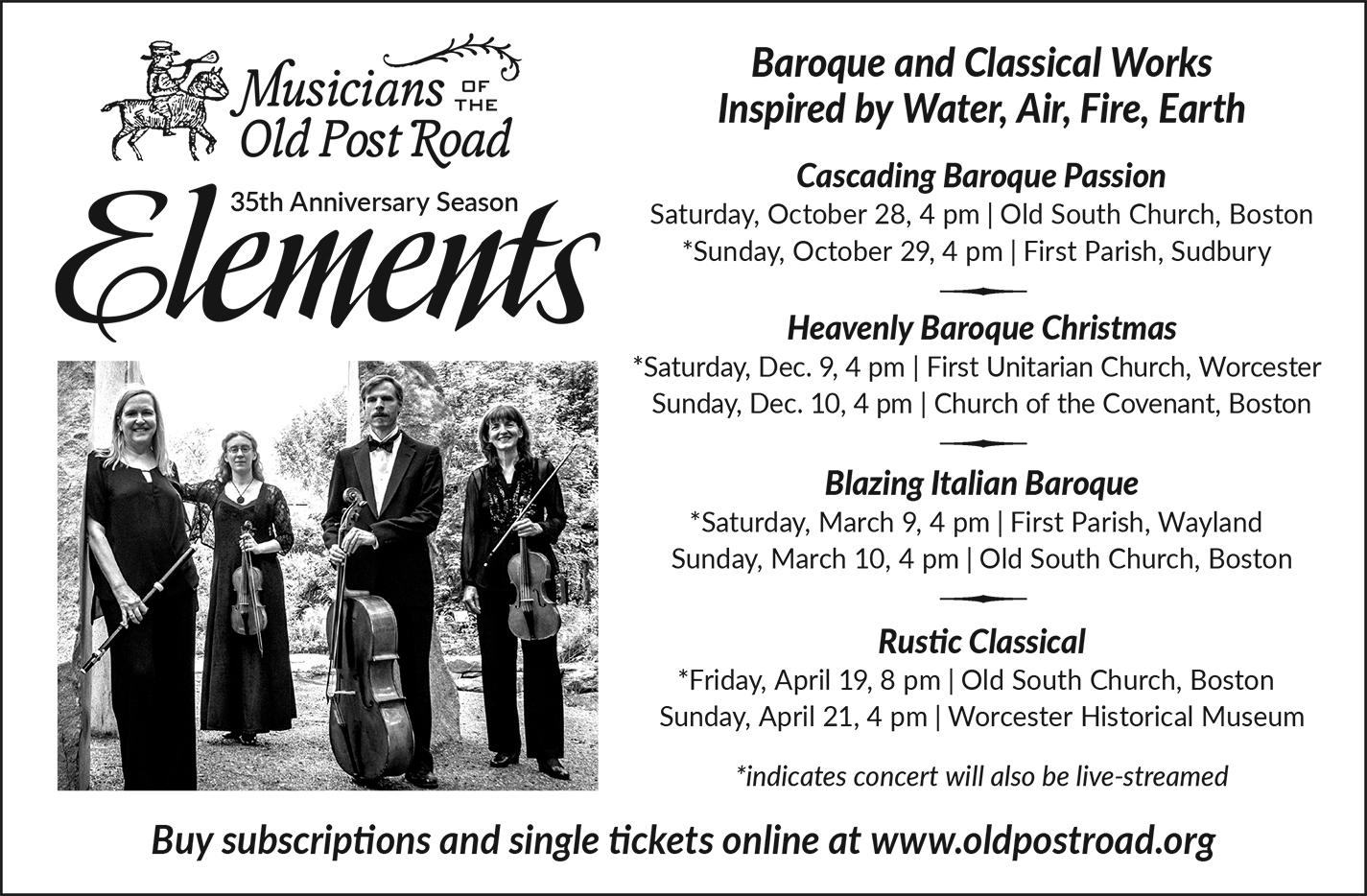
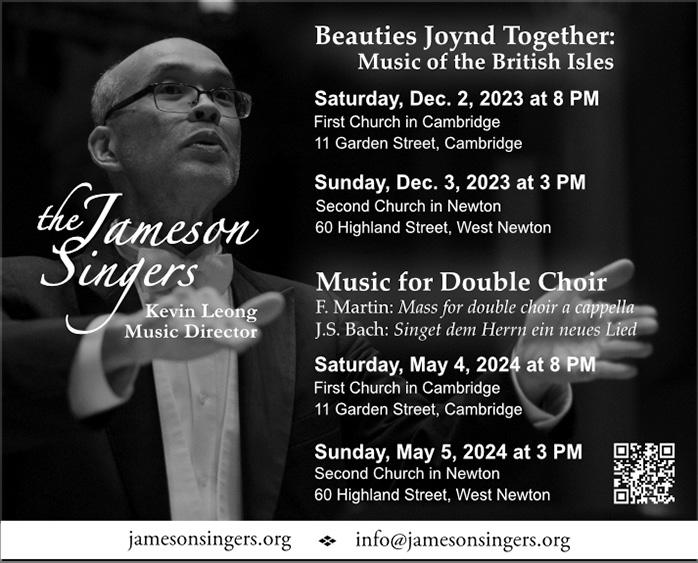
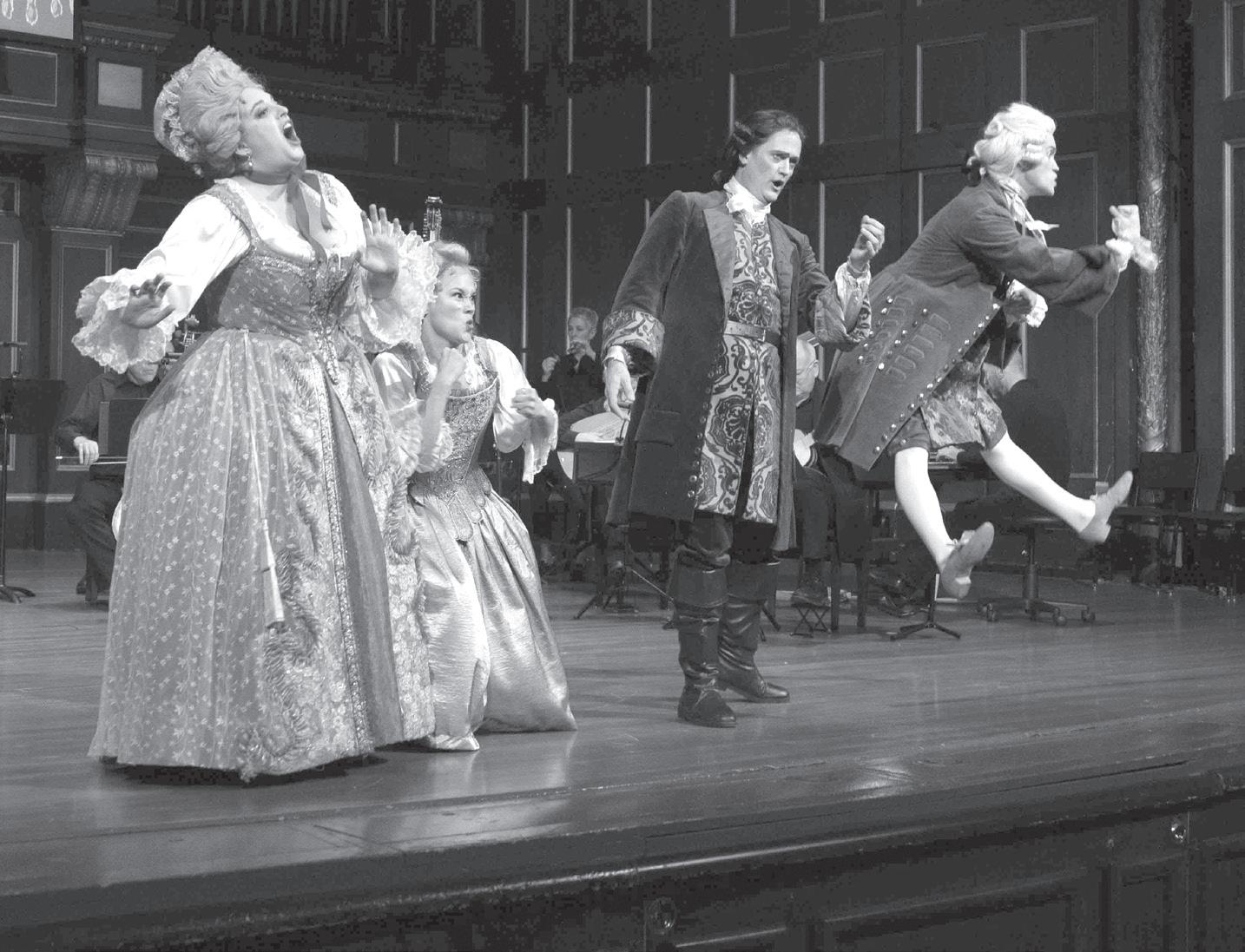
Play a vital and permanent role in BEMF’s future with a planned gift. Your generous support will create unforgettable musical experiences for years to come, and may provide you and your loved ones with considerable tax benefits.
Join the BEMF ORPHEUS SOCIETY by investing in the future of the Boston Early Music Festival through a charitable annuity, bequest, or other planned gift. With many ways to give and to direct your gift, our staff will work together with you and your advisors to create a legacy that is personally meaningful to you.
To learn more, please call us at 617-661-1812, email us at kathy@bemf.org, or visit us online at BEMF.org/plannedgiving.
BEMF’S 2023 PRODUCTION OF DESMAREST’S CIRCÉ
PHOTO: KATHY WITTMAN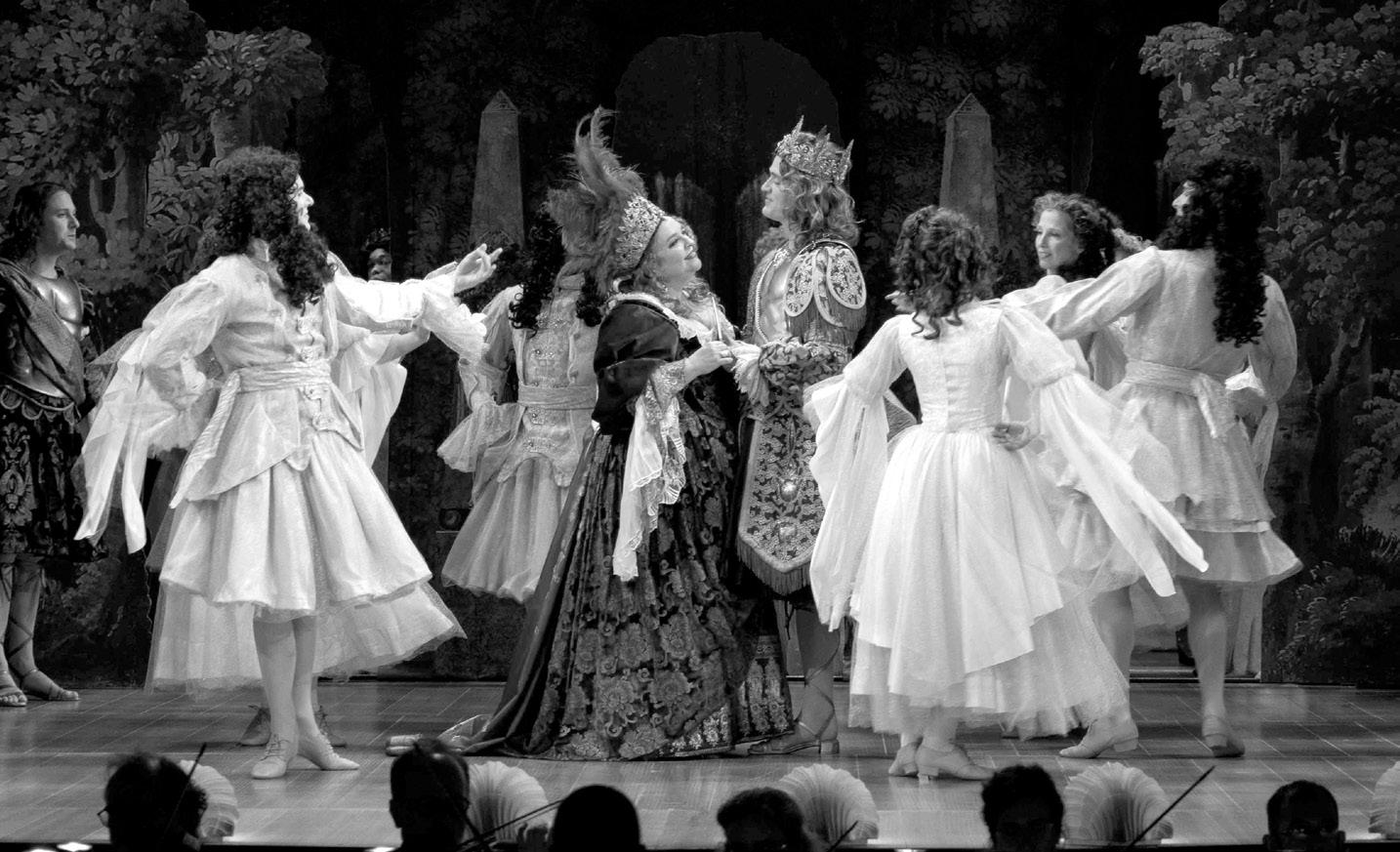
InternatIonal Baroque opera • CeleBrated ConCerts • World-Famous exhIBItIon

The Boston Early Music Festival (BEMF) is universally recognized as a leader in the field of early music. Since its founding in 1980 by leading practitioners of historical performance in the United States and abroad, BEMF has promoted early music through a variety of diverse programs and activities, including an annual concert series that brings early music’s brightest stars to the Boston and New York concert stages, and the biennial weeklong Festival and Exhibition, recognized as “the world’s leading festival of early music” (The Times, London). Through its programs BEMF has earned its place as North America’s premier presenting organization for music of the Medieval, Renaissance, and Baroque periods and has secured Boston’s reputation as “America’s early music capital” (Boston Globe).
One of BEMF’s main goals is to unearth and present lesser-known Baroque operas performed by the world’s leading musicians armed with the latest information on period singing, orchestral performance, scenic design, costuming, dance, and staging. BEMF operas reproduce the Baroque’s stunning palette of sound by bringing together today’s leading operatic superstars and a wealth of instrumental talent from across the globe to one stage for historic presentations, all zestfully led from the pit by the BEMF Artistic Directors Paul O’Dette and Stephen Stubbs, and creatively reimagined for the stage by BEMF Opera Director Gilbert Blin.
The twenty-second biennial Boston Early Music Festival, A Celebration of Women,
was held in June 2023 and featured Henry Desmarest’s 1694 opera Circé from a libretto by Louise-Geneviève Gillot de Saintonge, which saw the return of the Boston Early Music Festival Dance Company, a troupe of dancers under the guidance of BEMF Dance Director Melinda Sullivan. The twenty-third Festival, in June 2025, will have as its centerpiece Reinhard Keiser’s 1705 opera Octavia.
BEMF introduced its Chamber Opera Series during its annual concert season in November 2008, with a performance of John Blow’s Venus and Adonis and MarcAntoine Charpentier’s Actéon. The series focuses on the wealth of chamber operas composed during the Baroque period, while providing an increasing number of local
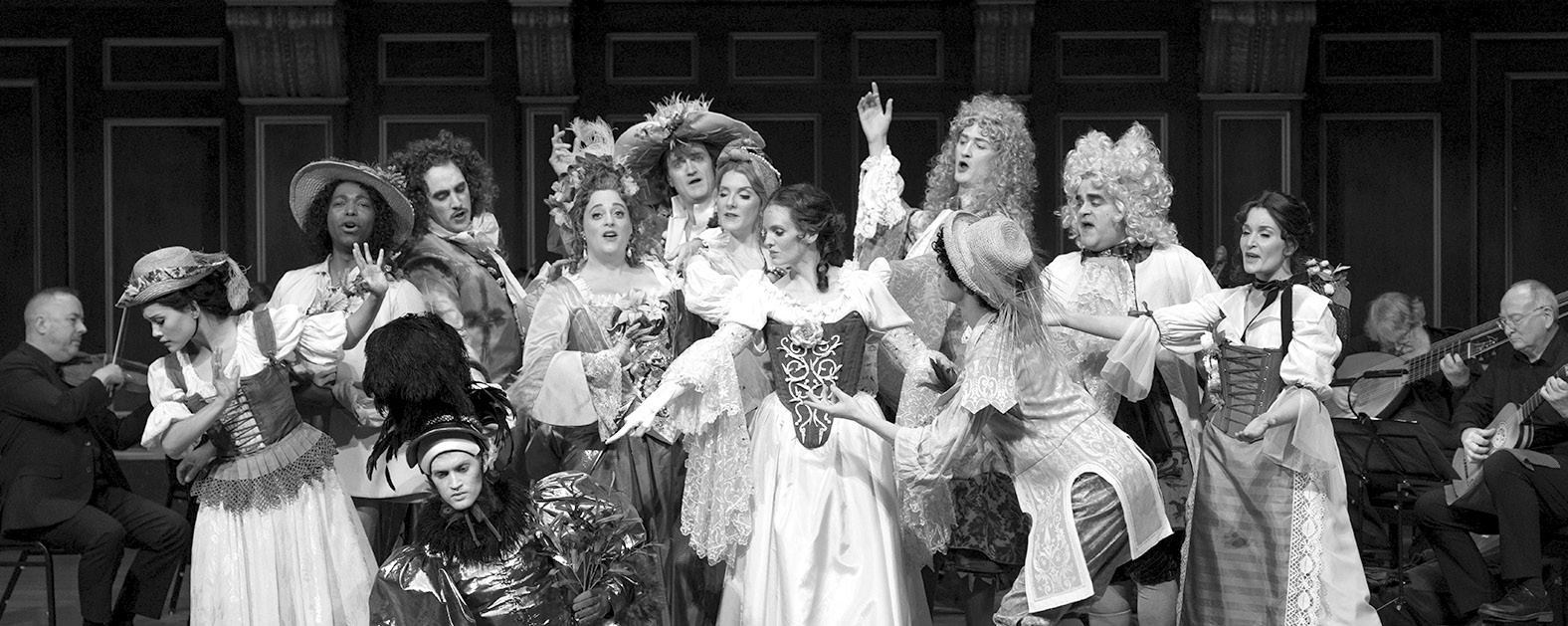
opera aficionados the opportunity to attend one of BEMF’s superb offerings. Subsequent annual productions include George Frideric Handel’s Acis and Galatea, Henry Purcell’s Dido and Aeneas, combined performances of Charpentier’s La Descente d’Orphée aux Enfers and La Couronne de Fleurs, Monteverdi’s Orfeo, a double bill of Pergolesi’s La serva padrona and Livietta e Tracollo, a production titled “Versailles” featuring Les Plaisirs de Versailles by Charpentier, Les Fontaines de Versailles by Michel-Richard de Lalande, and divertissements from Atys by Jean-Baptiste Lully, Francesca Caccini’s Alcina, the first opera written by a woman, a combination of Telemann’s Pimpinone and Ino, joint performances of Lully’s Idylle sur la Paix and Charpentier’s La Fête de Rueil, and most recently John Frederick Lampe’s The Dragon of Wantley. Acis and Galatea was revived and presented on a four-city North American Tour in early 2011, which included a performance at the American Handel Festival
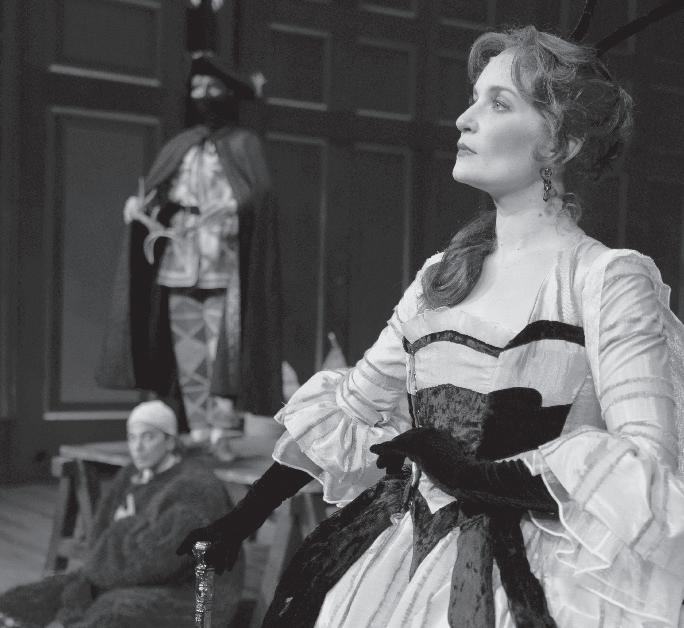
in Seattle, and in 2014, BEMF’s second North American Tour featured the Charpentier double bill from 2011.
BEMF has a well-established and highly successful project to record some of its groundbreaking work in the field of Baroque opera. The first three recordings in this series were all nominated for the Grammy Award for Best Opera Recording, in 2005, 2007, and 2008: the 2003 Festival centerpiece Ariadne, by Johann Georg Conradi; Lully’s Thésée; and the 2007 Festival opera, Lully’s Psyché, which was hailed by BBC Music Magazine as “superbly realized…magnificent.” In addition, the BEMF recordings of Lully’s Thésée and Psyché received Gramophone Award Nominations in the Baroque Vocal category in 2008 and 2009, respectively. BEMF’s next three recordings on the German CPO label were drawn from its Chamber Opera Series: Charpentier’s Actéon, Blow’s Venus and Adonis, and a release of Charpentier’s La Descente d’Orphée aux Enfers and La Couronne de Fleurs, which won the 2015 Grammy Award for Best Opera Recording and the 2015 Echo Klassik Opera Recording of the Year (17th/18th Century Opera). Agostino Steffani’s Niobe, Regina di Tebe, featuring Philippe Jaroussky and Karina Gauvin, which was released in January 2015 on the Erato/ Warner Classics label in conjunction with a seven-city, four-country European concert tour of the opera, has been nominated for a Grammy Award, was named Gramophone’s Recording of the Month for March 2015, is the 2015 Echo Klassik World Premiere Recording of the Year, and has received a 2015 Diapason d’Or de l’Année and a 2015 Preis
der deutschen Schallplattenkritik. Handel’s Acis and Galatea was released in November 2015. In 2017, while maintaining the focus on Baroque opera, BEMF expanded the recording project to include other select Baroque vocal works: a new Steffani disc, Duets of Love and Passion, was released in September 2017 in conjunction with a six-city North American tour, and a recording of Johann Sebastiani’s St. Matthew Passion was released in March 2018. Four Baroque opera releases followed in 2019 and 2020: a disc of Charpentier’s chamber operas Les Plaisirs de Versailles and Les Arts Florissants was released at the June 2019 Festival, and has been nominated for a Grammy Award; the 2013 Festival opera, Handel’s Almira, was released in late 2019, and received a Diapason d’Or. Lalande’s chamber opera Les Fontaines de Versailles was featured on a September 2020 release of the composer’s works; Christoph Graupner’s opera Antiochus und Stratonica was released in December 2020.
BEMF’s recording of Desmarest’s Circé, the 2023 Festival opera, was released concurrently with the opera’s North American premiere, and the newest recording, Pergolesi’s La serva padrona and Livietta e Tracollo, was released in December 2023.
Some of the most thrilling musical moments at the biennial Festival occur during one of the dozen or more concerts presented around the clock, which always include the acclaimed Boston Early Music Festival Orchestra led by Orchestra Director Robert Mealy, and which often feature unique, once-in-a-lifetime collaborations and programs by the spectacular
array of talent assembled for the Festival week’s events. In 1989, BEMF established an annual concert series bringing early music’s leading soloists and ensembles to the Boston concert stage to meet the growing demand for regular world-class performances of early music’s beloved classics and newly discovered works. BEMF then expanded its concert series in 2006, when it extended its performances to New York City’s Gilder Lehrman Hall at the Morgan Library & Museum, providing “a shot in the arm for New York’s relatively modest early-music scene” (New York Times).
The nerve center of the biennial Festival, the Exhibition is the largest event of its kind in the United States, showcasing nearly one hundred early instrument makers, music publishers, service organizations, schools and universities, and associated colleagues. In 2013, Mozart’s own violin and viola were displayed at the Exhibition, in their first-ever visit to the United States. Every other June, hundreds of professional musicians, students, and enthusiasts come from around the world to purchase instruments, restock their libraries, learn about recent musicological developments, and renew old friendships. For four days, they visit the Exhibition booths to browse, discover, and purchase, and attend the dozens of symposia, masterclasses, and demonstration recitals, all of which encourage a deeper appreciation of early music, and strengthen relationships between musicians, participants, and audiences. n

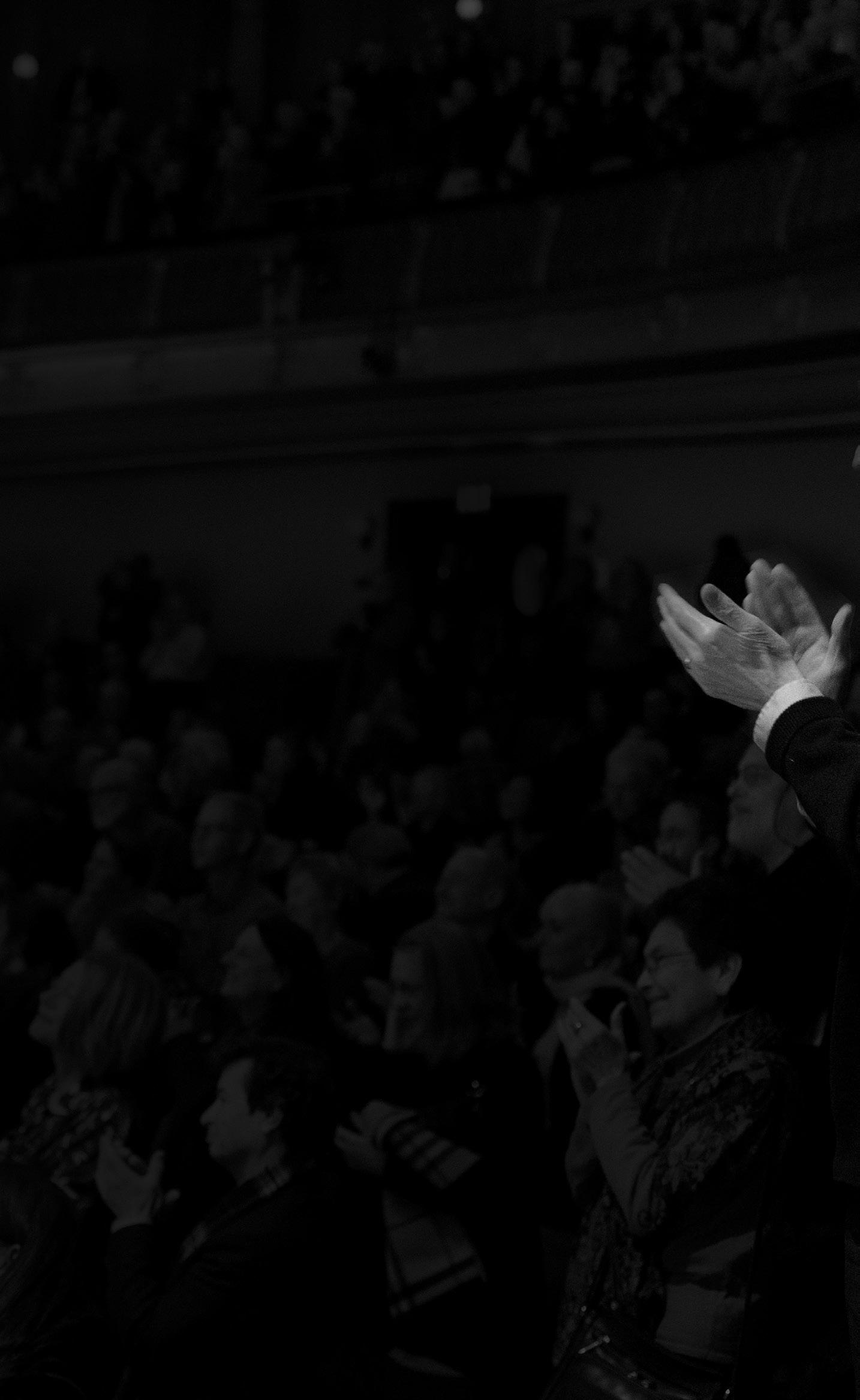
Revenue from ticket sales, even from a sold-out performance, accounts for less than half of the total cost of producing BEMF’s operas and concerts; the remainder is derived almost entirely from generous friends like you. With your help, we will be able to build upon the triumphs of the past, and continue to bring you thrilling performances by today’s finest Early Music artists.
Our membership organization, the FRIENDS OF THE BOSTON EARLY MUSIC FESTIVAL, includes donors from around the world. These individuals recognize the Festival’s need for further financial support in order to fulfill its aim of serving as a showcase for the finest talent in the field.
PLEASE JOIN THE FRIENDS OF THE BOSTON EARLY MUSIC FESTIVAL BY DONATING AT ONE OF SEVERAL LEVELS:
• Friend $45
• Partner $100
• Associate $250
• Patron $500
• Guarantor $1,000
• Benefactor $2,500
• Leadership Circle $5,000
• Artistic Director’s Circle $10,000
• Festival Angel $25,000
THREE WAYS TO GIVE:
• Visit BEMF.org and click on “Give Now”.
• Call BEMF at 617-661-1812 to donate by telephone using your credit card
• Mail your credit card information or a check (payable to BEMF) to Boston Early Music Festival, 43 Thorndike Street, Suite 302, Cambridge, MA 02141-1764
OTHER WAYS TO SHOW YOUR SUPPORT:
• Increase your philanthropic impact with a Matching Gift from your employer.
• Make a gift of appreciated stocks or bonds to BEMF.
• Planned Giving allows you to support BEMF in perpetuity while achieving your financial goals.
• Direct your gift to a particular area that interests you with a Named Gift.
QUESTIONS? Please e-mail Kathleen Fay at kathy@bemf.org, or call the BEMF office at 617-661-1812. Thank you for your support!
This list reflects donations received from June 1, 2022 to February 8, 2024
($25,000 or more)
Anonymous (3)
Bernice K. Chen
Brit d’Arbeloff
Peter L. & Joan S.† Faber
Dorothy Ryan Fay†
David Halstead & Jay Santos
George L. Hardman
Glenn A. KnicKrehm
David M. Kozak & Anne Pistell, in memory of their parents
Miles Morgan
Lorna E. Oleck
Susan L. Robinson
Andrew Sigel
Joan Margot Smith
Piroska Soos†
Donald E. Vaughan & Lee S. Ridgway
($10,000 or more)
Diane & John Paul Britton
Katie & Paul Buttenwieser
Susan Denison
Susan Donaldson
Tony Elitcher & Andrea Taras
Marie-Pierre & Michael Ellmann
Jean Fuller Farrington
Lori Fay & Christopher Cherry, in memory of Dorothy Ryan Fay
Clare M. S. Fewtrell†
James A. Glazier
Donald Peter Goldstein, M.D., in memory of
Constance Kellert Goldstein
Ellen T. & John T. Harris
Barbara & Amos Hostetter
Robert E. Kulp, Jr.
Mr. & Mrs. Thomas G. MacCracken
Heather Mac Donald & Erich Eichman
Bill McJohn
Kenneth C. Ritchie & Paul T. Schmidt

Karen Tenney & Thomas Loring
Christoph Wolff
($5,000 or more)
Anonymous (4)
Mary Briggs & John Krzywicki
Douglas M. & Aviva A. Brooks
Kathleen Fay, in memory of Dorothy Ryan Fay
John Felton & Marty Gottron
Mei-Fung Kerley, in memory of Ted Chen
Harriet Lindblom, in memory of Daniel Lindblom
Marianne & Terry Louderback
Victor & Ruth McElheny
Ruth McKay & Don Campbell
Harold I. Pratt
Joanne Zervas Sattley
David Scudder, in memory of Marie Louise Scudder
Maria van Kalken & Hal Winslow, in memory of Adrian van Kalken
($2,500 or more)
Anonymous (2)
Anonymous, in honor of Bernice K. Chen
Annemarie Altman
Pamela & Lee Bromberg
Beth Brown, in memory of Walter R.J. Brown
Gregory E. Bulger & Richard Dix
John A. Carey
Carla Chrisfield & Benjamin D. Weiss
Elizabeth Davidson, in honor of David Morris
Peter & Katie DeWolf
David Emery & Olimpia Velez
Alan M. King
Dr. Peter Libby, in memory of Dr. Beryl Benacerraf
John S. Major & Valerie Steele
Keith Ohmart & Helen Chen
Nina & Timothy Rose
Catherine & Phil Saines, in honor of Barbara K. Wheaton
Raymond A. & Marilyn Smith
Richard K. & Kerala J. Snyder
Keith S. Tóth & John B. Herrington III
Adrian & Michelle Touw
Will & Alexandra Watkins
Ellen & Arnold Zetcher
($1,000 or more)
Anonymous (12)
Eric Hall Anderson, in memory of William Wolk
Susan Bromley
Amy Brown & Brian Carr
David L. Brown, in memory of Larry Phillips
James Burr
Betty Canick
Robert & Elizabeth Carroll
Bernice Chen & Mimi Kerley, in memory of Ted Chen
Dr. & Mrs. Franklyn Commisso
Joseph Connors
Joseph E. Coppola
Richard & Constance Culley
Belden & Pamela Daniels
Jeffrey Del Papa
Ross Duffin & Beverly Simmons, in honor of Kathleen Fay
Henk Elderhorst
Peter L. Faber, in memory of Joan S. Faber
Michael E. Fay
Bruce A. Garetz
Sarah M. Gates
David & Harriet Griesinger
Phillip Hanvy
Dr. Robert L. Harris
Rebecca & Ronald Harris-Warrick
Michael Herz & Jean Roiphe
James & Ina Heup
Sally Hodges
Jessica Honigberg
Jane Hoover
Thomas M. Hout & Sonja Ellingson Hout, in honor of Kathy Fay for her hard work
Barry Kernfeld & Sally McMurry
Art & Linda Kingdon
Fran & Tom Knight
Kathryn Mary Kucharski
Robert & Mary La Porte
Frederick V. Lawrence, in memory of Rosemarie Lawrence
Amelia J. LeClair & Garrow Throop
John Leen & Eileen Koven
Lawrence & Susan Liden
Mark & Mary Lunsford
MAFAA
William & Joan Magretta
Carol Marsh
David McCarthy & John Kolody
Amy & Brian McCreath
Michael P. McDonald
Marilyn Miller
Stephen Moody
Jeffrey G. Mora, in memory of Wendy Fuller-Mora
Alan & Kathy Muirhead
Sheila A. Murphy
Robert Neer & Ann Eldridge
Rebecca Nemser, in memory of Paul Nemser
John M.† & Bettina A. Norton
Louise Oremland
Richard & Julia Osborne
Richard & Lois Pace, in honor of Peter Faber
Brian Pfeiffer
Neal J. Plotkin & Deborah Malamud
Gene & Margaret Pokorny
Amanda & Melvyn Pond
Tracy Powers
Susan Pundt
Paul Rabin & Arlene Snyder
Christa Rakich & Janis Milroy
Alice Robbins & Walter Denny, in honor of Kathy Fay
Michael Robbins
Sue Robinson
Jose M. Rodriguez & Richard A. Duffy
Patsy Rogers
Ellen Rosand
Michael & Karen Rotenberg
Carlton & Lorna Russell
Kevin Ryan & Ozerk Gogus, in memory of Dot Fay
Lynne & Ralph Schatz
Susan Schuur
Laila Awar Shouhayib
Cynthia Siebert
Alexander & Kathy Silbiger
Elizabeth Snow
Catherine & Keith Stevenson
David & Jean Stout, in honor of Kathy Fay
Carl Swanson
Lisa Teot
Paula & Peter Tyack
Reed & Peggy Ueda
Peter J. Wender
Allan & Joann Winkler
($500 or more)
Anonymous (9)
Morton Abromson & Joan Nissman
Nicholas Altenbernd
Brian P. & Debra K. S. Anderson, in honor of Kathleen M. Fay
Tom & Judy Anderson Allen, in memory of Dorothy Fay
Tom & Judy Anderson Allen, in memory of Adrian van Kalken
Julie Andrijeski & J. Tracy Mortimore
Louise Basbas
William & Ann Bein
Michael & Sheila Berke
Dee Dee & John Brinkema, in memory of Bobby Brinkema
Robert Burton & Karen Peterson
Frederick Byron
Anne Chalmers & Holly Gunner
Mary Chamberlain
David J. Chavolla
JoAnne Chernow
Sherryl & Gerard Cohen
Linzee Coolidge
Geoffrey Craddock
Eric & Margaret Darling
Leigh Deacon
Carl E. Dettman
Kathryn Disney
Alan Durfee
Helen Edwards
Gabriel Ellsworth
Charles & Elizabeth Emerson
Thomas G. Evans
Austin & Eileen Farrar
Nicole Faulkner
Daniel & Paula Fay
Mary Fillman & Mary Otis Stevens
Charles Fisk
Martin & Kathleen Fogle
Claire Fontijn, in memory of Arthur Fontijn & Sylvia Elvin
Elizabeth French
Jonathan Friedes & Qian Huang
Fred & Barbara Gable
Sandy Gadsby & Nancy Brown
Christopher K. Gaffney, in memory of Bill Crocker
Alexander Garthwaite
George & Marla Gearhart
Elizabeth B. Hardy, in memory of Renate Wolter-Seevers
David J. Harris, MD
Joan E. Hartman
Linda Hodgkinson
Phyllis Hoffman
Charles Bowditch Hunter
Laura Jeppesen & Daniel Stepner
Paul & Alice Johnson
Robert L. Kleinberg
Neal & Catherine Konstantin
Jasper Lawson
William Leitch
Susan Lewinnek
Catherine Liddell
Roger & Susan Lipsey
James Liu & Alexandra Bowers
Jeffrey & Barbara Mandula
Marietta Marchitelli
Carol & Pedro Martinez
Anne H. Matthews
June Matthews
Sally Mayer
Ray Mitzel
John R. Palys
William J. Pananos
Joseph L. Pennacchio
Phillip Petree
Susan Pettee & Michael Wise
Hon. W. Glen Pierson & Hon. Charles P. Reed
Pamela Posey
Mahadev & Ambika Raman
Sandy Reismann & Dr. Nanu Brates
Rusty Russell, in honor of Kathy Fay
Cheryl K. Ryder
Susan Sargent & Tom Peters
Richard Schroeder & Dr. Jane Burns
Charles & Mary Ann Schultz
Wendy Shattuck & Sam Plimpton
Harvey A. Silverglate, in memory of Elsa Dorfman
Mark Slotkin
Lynne Spencer
Louisa C. Spottswood
Campbell Steward
Ronald W. Stoia
Paola Stone, in memory of Edmondo Malanotte
Theresa & Charles Stone
Ralph & Jeanine Swick, in memory of Alan & Judie Kotok
Lonice Thomas
Mark S. Thurber & Susan M. Galli
Richard Urena
Robert Viarengo
Louella Krueger Ward, in memory of Dr. Alan J. Ward, PhD, ABPP
Thomas & LeRose Weikert
John C. Wiecking
Kathleen Wittman & Melanie Andrade, in memory of John Wittman
The Zucker Family
($250 or more)
Anonymous (6)
Anonymous, in memory of Dorothy Ryan Fay
Anonymous, in honor of Marco Horvat & Faenza
Anonymous, in honor of Nancy Olson
Joseph Aieta III
Elizabeth Alexander
Margaret Angelini & John McLeod†
Barry & Sarita Ashar
Carl Baker & Susan Haynes
Noel & Paula Berggren
Deborah Boldin & Gabriel Rice
Todd A. Breitbart
David Breitman & Kathryn Stuart
David C. Brown
Elizabeth A.R. Brown & Ralph S. Brown, Jr., in honor of Kathleen Fay
Robert Burger
Joseph Cantey
Floyd & Aleeta Christian
Priscilla H. Claman
John K. Clark & Judith M. Stoughton
Christopher Curdo
Warren R. Cutler
Carl & May Daw
Michael DiSabatino, in honor of Nancy Olson
Ellen Dokton & Stephen Schmidt
Charles & Sheila Donahue
Tamar & Jeremy Kaim Doniger
Chuck Epstein & Melia Bensussen
Lila M. Farrar
Gregg, Abby & Max Feigelson
Grace A. Feldman, in honor of Bernice Chen
Gisela & Ronald Geiger
Joseph Glenmullen, M.D.
Philip Glynn
The Goldsmith Family
Lisa Goldstein
Nancy L. Graham
Mary Greer
Laury Gutierrez & Elsa Gelin
Eric Haas, in memory of Janet Haas
Dr. Joanna Haas
Eric & Dee Hansen
Rebecca & Richard Hawkins
Catherine & John Henn
Mary Hepburn, in honor of Laura Jeppesen
Katherine A. Hesse
David Hoglund
Amy & Seamus Hourihan
Wayne & Laurell Huber
Keith L. & Catherine B. Hughes
Brian Hussey
Francesco Iachello
Jean Jackson, in memory of Louis Kampf
Robin Johnson
Patrick G. Jordan
David Keating
Thomas F. Kelly & Peggy Badenhausen
David P. Kiaunis
Forrest Knowles
George Kocur
Katharine & Tom Kush, in honor of Michael Ellmann
Rob & Mary Joan Leith
Robert & Janice Locke
William Loutrel & Thomas Fynan
Kenneth S. Loveday
Mary Maarbjerg
Rodolfo Machado & Jorge Silvetti
Quinn MacKenzie
James McBride
Lee McClelland
John & Marianne Nelson
Clara M. & John S. O’Shea
Patricia T. Owen
Henry & Judy Paap
Eugene Papa
Cosmo & Jane P. Papa
Henry Paulus
Kitty Pell
David & Beth Pendery
Elizabeth V. Phillips
Stephen Poteet
Anne & François Poulet
Lawrence Pratt & Rosalind Forber
Rodney J. Regier
Hadley & Jeannette Reynolds
Marge Roberts
Arthur & Elaine Robins
Michael Rogan & Hugh Wilburn
Lois Rosow
Nancy & Ronald Rucker
Paul Rutz
David Sears
Mr. Terry Shea & Dr. Seigo Nakao
David Snead & Kate Prescott
Ann Stewart
Victoria Sujata
Melinda Sullivan & Larry Friedman
Kenneth P. Taylor
Nancy M. Tooney
John & Dorothy Truman
Peter & Kathleen Van Demark
Mark Vangel, in memory of Monica Strauss
Richard & Virginia von Rueden
Patrick Wallace & Laurie McNeil
Scott & Barbara Winkler
Beverly Woodward & Paul Monsky
Michael Wyatt
Susan Wyatt
Ellen L. Ziskind
($100 or more)
Anonymous (17)
Anonymous, in memory of Dorothy Ryan Fay
Anonymous, in honor of Kathy Fay
Anonymous, in memory of Adrian van Kalken
Vilde Aaslid
Anne Acker
Maria Adams
Mr. Neale Ainsfield & Dr. Donna Sieckmann
Druid Errant D.T. Allan-Gorey
Ken Allen
Cathy & William Anderson
Margarete Arndt
Neil R. Ayer, Jr. & Linda Ayer
Antonia L. Banducci
Dr. David Barnert & Julie Raskin
Rev. & Mrs. Joseph Bassett
Alan Bates & Michele Mandrioli
George Beach
Lawrence Bell
Alan Benenfeld
Susan Benua
Judith Bergson
Larry & Sara Mae Berman
Ann & Richard Bingham, in honor of Kathy Udall
John Birks
Sarah Bixler & Christopher Tonkin
Katharine C. Black
Moisha Blechman
Wes Bockley & Amy Markus
Patricia Boyd
Sally & Charlie Boynton
Joel Bresler
Catherine & Hillel Shahan Bromberg
Lawrence Brown
Margaret H. Brown
Robert Brown
Caroline A. Bruzelius, in memory of Kristin Mortimer
John H. Burkhalter III
Judi Burten, in memory of Phoebe Larkey
Kevin J. Bylsma
John Campbell
Eleanor Carlson
William Carroll
Bonnie & Walter Carter
Richard & Lois Case
Peter Charig & Amy Briemer
Robert B. Christian
Daniel Church & Roger Cuevas
Deborah J. Cohen
Joel I. Cohen, in honor of Anne Azéma
Dr. Martin Cohen & Dr. Rae Jacobs Cohen
Saul B. & Naomi R. Cohen
Carol & Alex Collier
Lois Evelyn Conley
Anne Conner
Peter B. Cook
David Cooke
Derek Cottier & Lauren Tilly
Robert B. Crane
Martina Crocker
Katherine Crosier, in memory of Carl C. Crosier
Gray F. Crouse
Donna Cubit-Swoyer
Alicia Curtis & Kathy Pratt
Ruta Daugela
Mary Deissler
Kate Delaney
William Depeter
Deborah & Forrest Dillon
Paul Doerr
Ben Dunham & Wendy Rolfe-Dunham
John Dunton & Carol McKeen
Mark Elenko
Anne Engelhart & Douglas Durant
Jake Esher
Richard Fabian
Marilyn Farwell
Margot Fassler
Ellen Feingold, in memory of Judith Davidoff
Henry & Judith Feldman
Hans & Ruth Fisher
Carol L. Fishman
Dr. Jonathan Florman
Howard C. Floyd
Deborah Fox & Ron Epstein
Gary Freeman
Robert Freeman
Cameron Freer
Marica & Jeff Freyman
R. Andrew Garthwaite
Sarah M. Gates
Stephen L. Gencarello
Monica & David Gerber
David & Susan Gerstein
William Glenn
Barbara Godard
Michael Goldberg
Joseph Grafwallner
The Graver Family
Lorraine & William Graves
Winifred Gray
Thomas H. & Lori B. Griswold
Deborah Grose
John Gruver & Lynn Tilley
Peter F. Gustafson
Sonia Guterman
Richard & Les Hadsell
Judy & Wayne Hall
Suzanne & Easley Hamner
Judith & Patrick Hanlon
Sam & Barbara Hayes
Donatus Hayes
Diane Hellens
Karin Hemmingsen
Marie C. Henderson, in memory of A. Brandt Henderson
Carole Hilton
Raymond Hirschkop
John & Olivann Hobbie
Roderick J. Holland
Jackie Horne
Valerie Horst & Benjamin Peck
John Hsia
Judith & Alan Hudson
Joe Hunter & Esther Schlorholtz
Susan L. Jackson
Chris & Klavs Jensen
Michele Jerison
Robert & Selina Johnson
Timothy Johnson
Marietta B. Joseph
Dian Kahn
Elizabeth Kaplan
Kathleen Kelly
Seamus & Marjorie Kelly
Louis & Susan Kern
Joseph J. Kesselman, Jr.
Holly Ketron
Leslie & Kimberly King
Maryanne King
Rebecca Klein
Pat Kline
Valerie & Karl KnicKrehm
Sara M. Knight
Jason Knutson
Leslie Kooyman
Valerie Krall
Ellen Kranzer
Benjamin Krepp & Virginia Webb
Jay Carlton Kuhn, Jr.
Carol LaFontaine
Peter A. Lans
Claire Laporte
Charles E. Larmore
David A. Leach & Laurie J. LaChapelle
Joanne & Carl Leaman
William Lebow
Alison Leslie
Drs. Sidney & Lynne Levitsky
Ellen R. Lewis
Lawrence & Susan Liden
Dr. Gary Ljungquist
Laura Loehr
Sandra & David Lyons
Ted MacDonald & Yuan Wang
Patrick Macey
Dr. Bruce C. MacIntyre
Louise Malcolm, in memory of W. David Malcolm, Jr.
Peter G. Manson & Peter A. Durfee
Sarah P. Marsh
Timothy Masters
Dr. Arnold Matlin & Dr. Margaret Matlin, Ph.D.
Donna McCampbell
Anne McCants
Heidi & George McEvoy
Dave & Jeannette McLellan
Gerald & Susan Metz
Eiji Miki†
Ruth Milburn
Margo Miller
Deborah Mintz
David Montanari & Sara Rubin
Michael J. Moran
Jennifer Moxley & Steve Evans
Gene Murrow
Myrna Nachman
Nancy Nicholson
Jeffrey Nicolich
Caroline Niemira
Lee Nunley
Nancy Nuzzo
Leslie Nyman
Nancy Olson & Charles DiSabatino
Michael Orlansky
Ruth & Ted Parent
Beth Parkhurst, in memory of Cheryl M. Parkhurst
Susan Patrick, in memory of Don Partridge
Jonah Pearl
Elizabeth Pearson-Griffiths
John Percy
John Petrowsky
Bici Pettit-Barron
Susan L. Porter & Robert S. Kauffman
Charles & Elizabeth Possidente
Sheila Reese
Norm Rehn
Deborah M. Reisman
Melissa Rice
Douglas Riis
Professor Julia Williams Robinson
Dennis & Anne Rogers
Sherry & William Rogers
Stephanie L. Rosenbaum
Philip W. Rosenkranz
Peter & Linda Rubenstein, in memory of Malcolm Cole
Patricia & Roger Samuel
Mike Scanlon
Elizabeth Scheffler
David Schneider & Klára Móricz
Melbert Schwartz
Alison M. Scott
Jean Seiler
David Seitz & Katie Manty
Aaron Sheehan & Adam Pearl
Chuck Sheehan
Michael Sherer
Susan Shimp
Dr. Glenn Sigl & Mr. John Self
Hana Sittler
Jacob & Lisa Skowronek
Elliott Smith & Wendy Gilmore
Jennifer Farley Smith & Sam Rubin
Richard Snow
Jon Solins
Scott Sprinzen
Ted St. Antoine
Gail St. Onge
Kathryn Steely
Esther & Daniel Steinhauer
John Strasswimmer
Barbara & Elliott Strizhak
Richard Stumpf
Robert G. Sullivan & Meriem Pages
Jonathan Swartz
Lois Swirnoff
Lee & Judith Talner
Richard Tarrant
Lisa Terry
Meghan K. Titzer
Janet Todaro
Peter Townsend
Pierre Trepagnier & Louise Mundinger
Donald & Elizabeth Trumpler
Lynette Tsiang
John & Anne Turtle
Barbara & John VanScoyoc
Lee Vorderer & Robert Bass
Robert & Therese Wagenknecht
John Wand
Robert Warren
Janice & Ty Waterman
Cheryl S. Weinstein
The Westner Family
Juanita Wetherell
The Rev. Roger B. White, in memory of Joseph P. Hough
Marina & Robert Whitman
Sarah Whittaker
Susan & Charles Wilkes
David L. Williamson
Phyllis S. Wilner
John Wolff & Helen Berger
Jerome Yavarkovsky & Catherine Lowe
Paulette York & Richard Borts
Lawrence Zukof & Pamela Carley
† deceased
Anonymous (2)
Aequa Foundation
American Endowment Foundation
Applied Technology Investors
BNY Mellon Charitable Gift Fund
Bank of America Charitable Gift Fund
The Barrington Foundation, Inc.
The Bel-Ami Foundation
The Boston Foundation
Boston Private Bank & Trust Company
Lynde and Harry Bradley Foundation, Inc.
Gregory E. Bulger Foundation
Burns & Levinson LLP
The Catherine and Paul Buttenwieser Foundation
Cabot Family Charitable Trust
Cambridge Community Foundation
Cambridge Trust Company
Cedar Tree Foundation
Cembaloworks of Washington
City of Cambridge
The Columbus Foundation
Combined Jewish Philanthropies
Community Foundation of Western Massachusetts
Connecticut Community Foundation
Constellation Charitable Foundation
The Fannie Cox Foundation
The Crawford Foundation
CRB Classical 99.5, a GBH station
Daffy Charitable Fund
The Dusky Fund at Essex County Community Foundation
Eastern Bank Charitable Foundation
Fidelity Charitable
Fiduciary Trust Charitable
French Cultural Center / Alliance Française of Boston
Ann and Gordon Getty Foundation
GlaxoSmithKline Foundation
Goethe-Institut Boston
The Goldman Sachs Philanthropy Fund
The Florence Gould Foundation
GTC Law Group
Haber Family Charitable Foundation
Hausman Family Charitable Trust
The High Meadow Foundation
Houghton Mifflin Harcourt
The Isaacson-Draper Foundation
The Richard and Natalie Jacoff Foundation, Inc.
Jewish Communal Fund
Key Biscayne Community Foundation
Konstantin Family Foundation
Maine Community Foundation
Makromed, Inc.
Massachusetts Cultural Council
Mastwood Foundation
Morgan Stanley
National Endowment for the Arts
Newstead Foundation
Barbro Osher Pro Suecia Foundation
The Packard Humanities Institute
Plimpton-Shattuck Fund at The Boston Foundation
The Mattina R. Proctor Foundation
REALOGY Corporation
Renaissance Charitable
The Saffeir Family Fund of the Maine Community Foundation
David Schneider & Klára Móricz Fund at Community Foundation of Western Massachusetts
Schwab Charitable
Scofield Auctions, Inc.
The Seattle Foundation
Shalon Fund
TIAA Charitable Giving Fund Program
The Trust for Mutual Understanding
The Tzedekah Fund at Combined Jewish Philanthropies
The Upland Farm Fund
U.S. Small Business Administration
U.S. Trust/Bank of America
Private Wealth Management
Vanguard Charitable
Walker Family Trust at Fidelity Charitable
Archie D. & Bertha H. Walker Foundation
Marian M. Warden Fund of The Foundation for Enhancing Communities
The Windover Foundation
Women On The Move LLC
21st Century Fox
Allegro MicroSystems
Amazon Smile
AmFam
Analog Devices
Aspect Global
Automatic Data Processing, Inc.
Biogen
Carrier Global
Dell, Inc.
Exelon Foundation
FleetBoston Financial Corporation
Genentech, Inc.
Grantham, Mayo, van Otterloo & Co. LLC
John Hancock Financial Services, Inc.
Community Gifts Through Harvard University
Houghton Mifflin Harcourt
IBM Corporation
Intel Foundation
Investment Technology Group, Inc. (ITG)
Microsoft Corporation
MLE Foundation, Inc.
Natixis Global Asset Management
Novartis US Foundation
NVIDIA
Pfizer
Pitney Bowes
Salesforce.org
Silicon Valley Community Foundation
Takeda
Tetra Tech
United Technologies Corporation
Verizon Foundation
Vertex Pharmaceuticals
Xerox Foundation
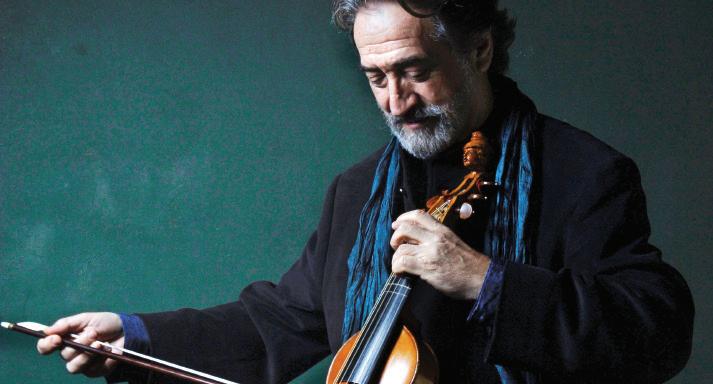


FRIDAY, APRIL 5 | 8PM
Early Music superstar Jordi Savall brings life to the “new music” that took Europe by storm at the start of the Baroque period from 1560 to 1660.
FRIDAY, APRIL 19 | 8PM
One of the world’s most vibrant and expressive vocal ensembles tells the story of Dante’s Divine Comedy and the journey from inferno to paradise with breathtaking Renaissance music.
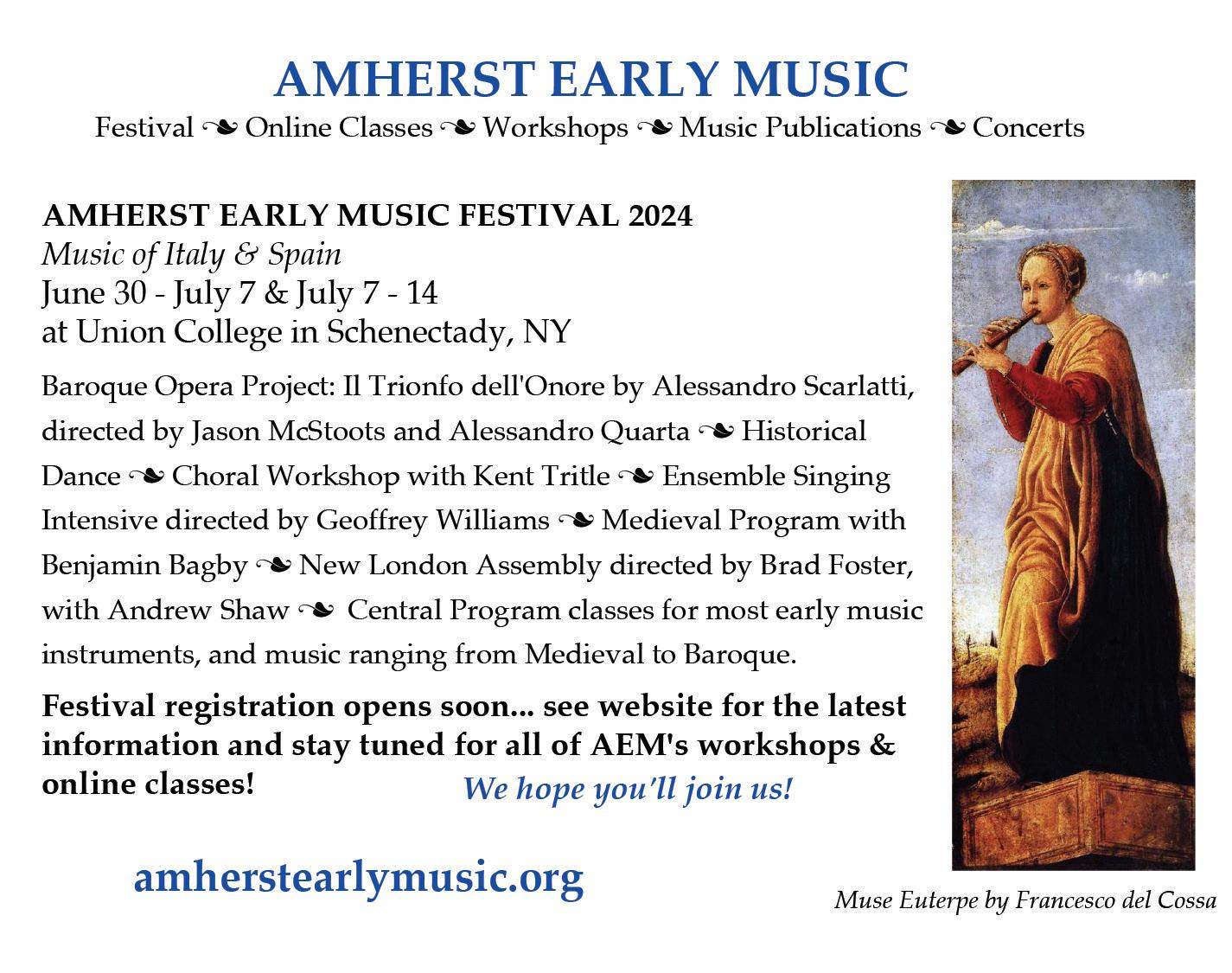
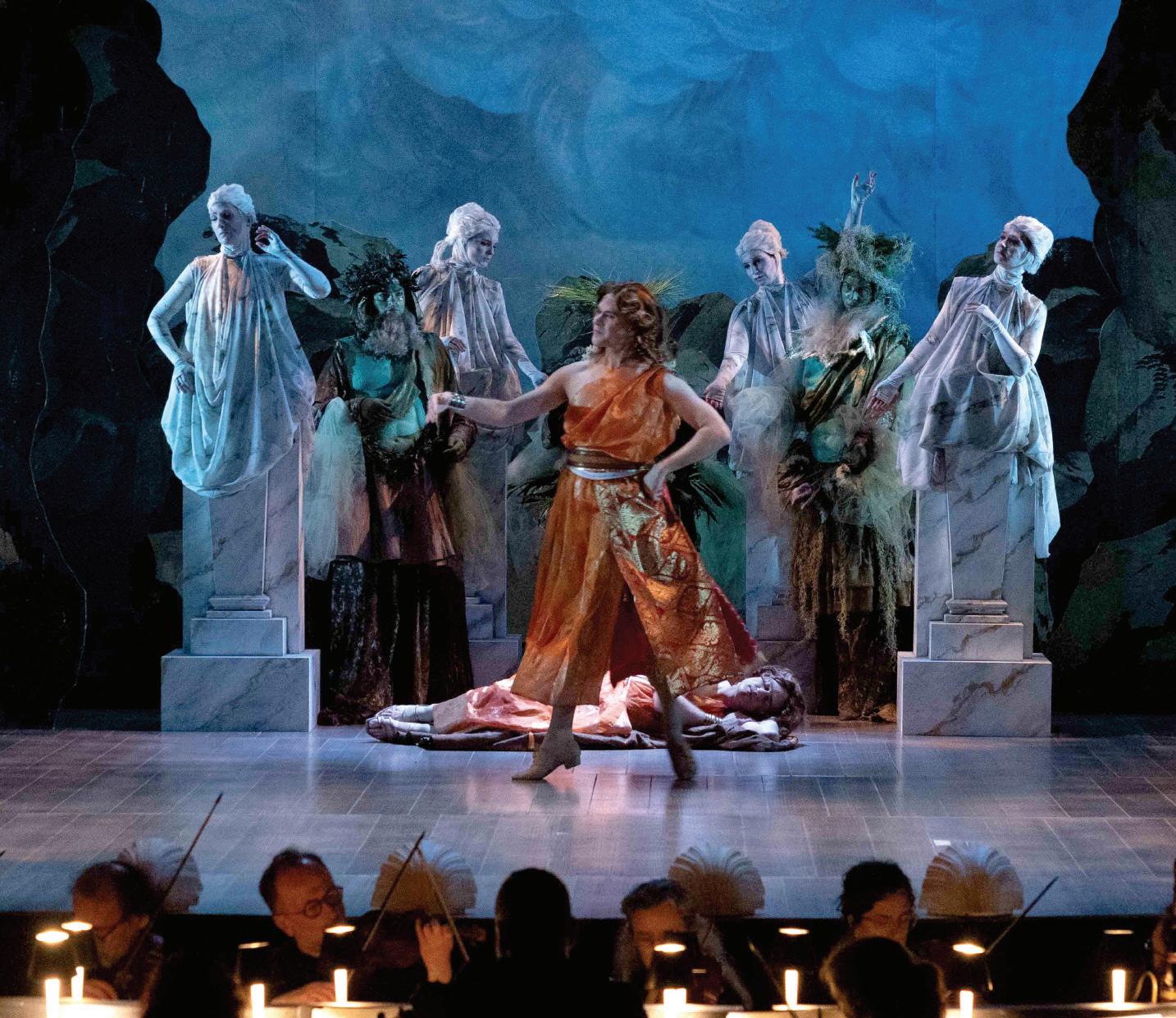
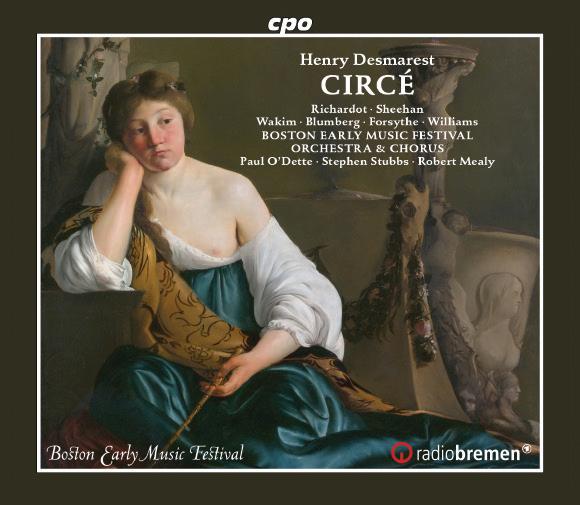

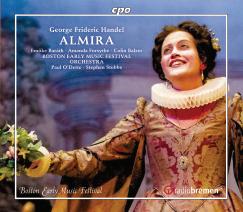
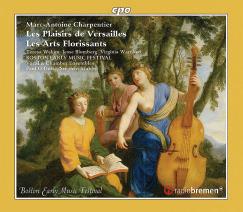
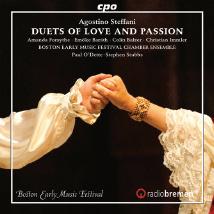
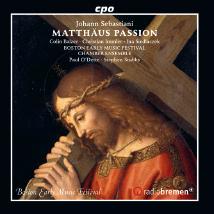



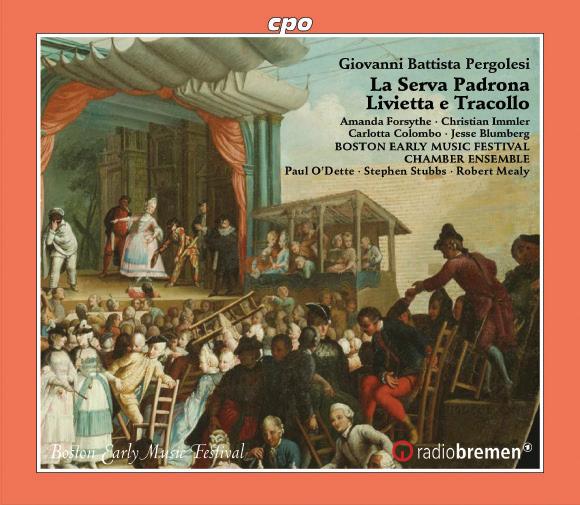
Giovanni Battista Pergolesi La Serva Padrona
Livietta e Tracollo
INTERNATIONALLY AWARD-WINNING